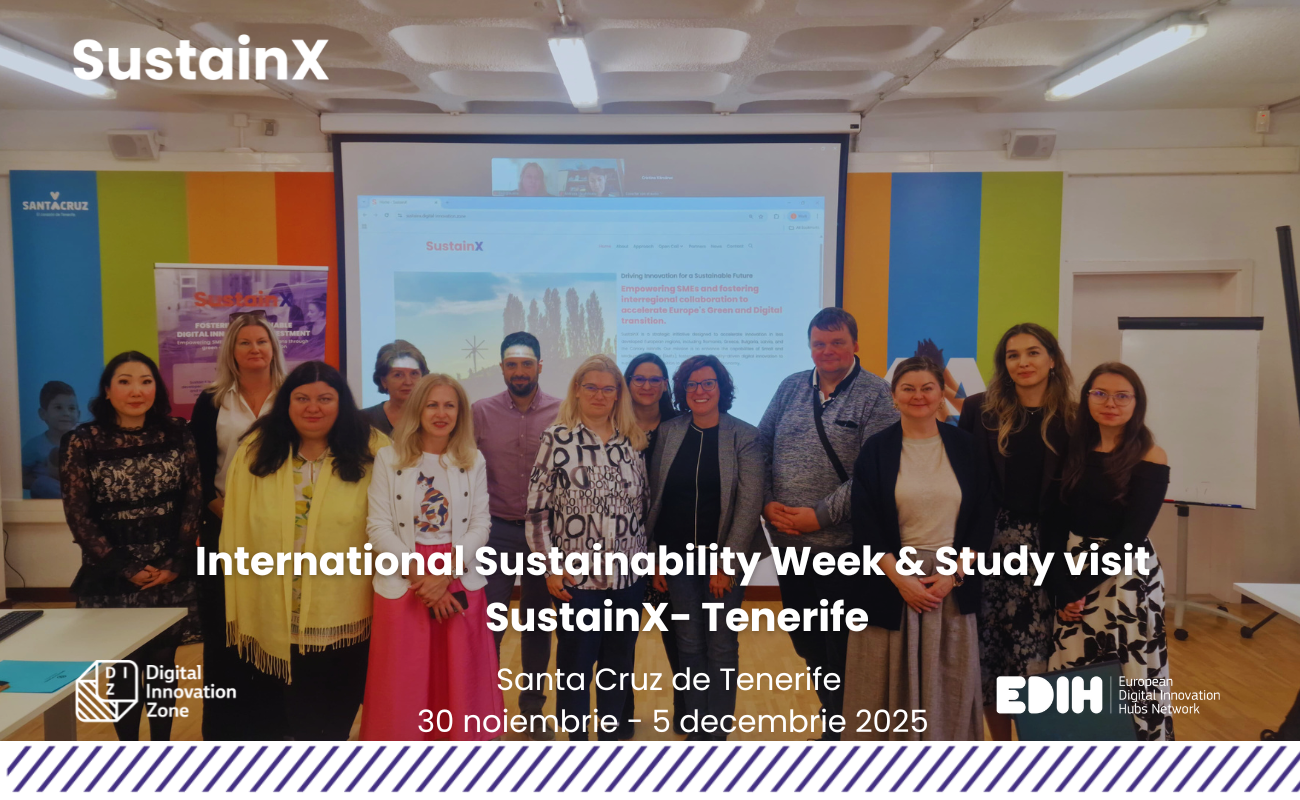
Digital Innovation Zone – International Sustainability Week
Between 30 November and 5 December 2025, the Digital Innovation Zone (DIZ) team organized International Sustainability Week—a working and learning
SustainX is a strategic initiative aimed at boosting innovation in less developed European regions (Romania, Greece, Bulgaria, Latvia, Canary Islands), primarily by improving the capabilities of small and medium-sized enterprises.
This project is significant in facilitating Europe’s transition to a green and digital economy. By leveraging the expertise and resources of a diverse consortium, SustainX addresses the unique challenges these regions face in driving innovation and technological progress.
SustainX is characterized by its approach of leveraging the skills of its consortium members in different sectors, each contributing to the overall goal of accelerating the green and digital transition of the economy.
The project involves a mix of digital and in-person collaboration methods, ensuring effective communication and integration across all project directions.
The program develops an approach that, directly or indirectly, has multiple short- and long-term effects on the development of innovation potential in partner regions. Its geographic scope, objectives and specific activities are designed to reach different target groups of beneficiaries across the ecosystem, spreading good practices, models and development tools to unlock opportunities for knowledge and technology transfer.
1.Increasing regional cohesion and stability in the targeted regions.
2. Facilitating the transition to a green and digital economy with a focus on digital transformation and sustainable innovation.
3. Improving the economic competitiveness of the European Union, by promoting innovation in less developed regions.
4. Promoting inter-regional collaboration and tailored solutions through the use of cross-sector networks and multiplier approaches.
• 50 SMEs with needs analysis;
• 15 SMEs with new innovation skills;
• 70 innovation projects analyzed;
• 20 I3 projects supported for implementation;
• 6 interregional partnerships;
• 1 one-stop-shop for innovation functional.
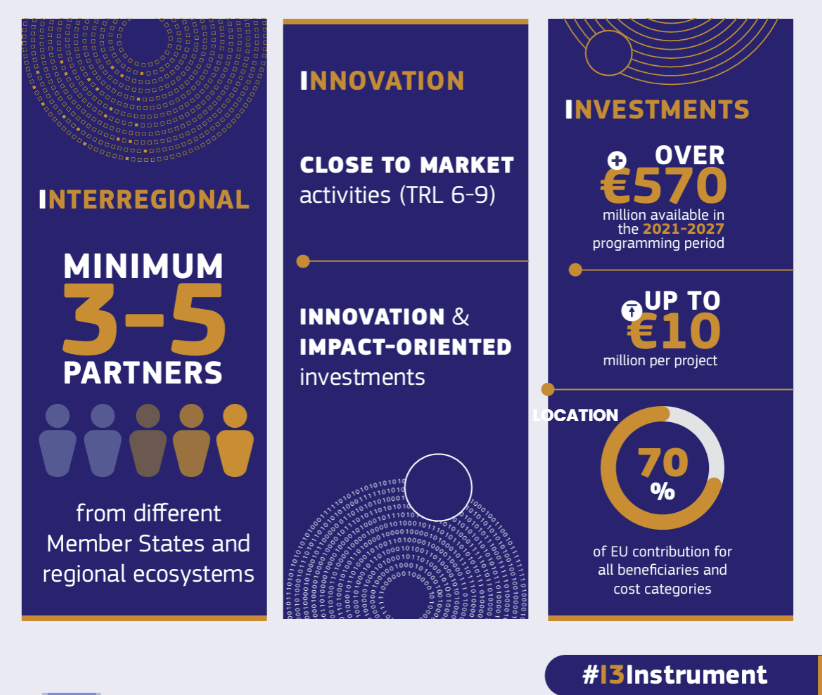

Increasing competitiveness: Support for developing innovation capabilities and creating bankable, market-ready projects.

Access to financing: Preparation for obtaining investments and grants through dedicated tools and support in developing successful proposals.

Expanding networks: Connecting with partners from European innovation ecosystems and participating in interregional value chains.

Training and mentoring: Customized training programs on key topics such as sustainability, digitalization, and innovation strategy.

Personalized support: A unique “one-stop-shop” model for SMEs, offering direct assistance, including ESG impact assessment tools.
1. ESG Assessment: Guidance for integrating sustainability.
2. Access to financing: Support in preparing pitches and investment plans.
3.Innovation Consulting: Personalized assistance for project development.
4.Digitalization: Test-before-invest and technology audits.
1. Digital platform: Centralized access to resources, best practices and assessments.
2. Multidisciplinary team: Experts from different fields connected through an integrated network.
Mini Collaboration Guide with the Canary Islands Region
Powered By EmbedPress
Main activities:
• Launch workshop: Presentation of SustainX and the benefits for SMEs.
• Assessment questionnaire: Collection of information on the needs and challenges of SMEs.
• Competency mapping: Assessment of the existing capabilities of the SME and identification of innovation gaps.
Result: Profile of the SME and a preliminary plan for the development of innovation projects.
Main activities:
• Training sessions: Participation in workshops dedicated to topics such as: Innovation management. Investment planning and development of innovation plans. Integration of sustainability and digitalization.
• Peer-to-peer learning events: Exchange of good practices with other SMEs from similar regions.
• Individual coaching: Personalized support for SME projects.
Result: The SME develops practical knowledge and skills for managing innovation projects.
Main activities:
• Thematic workshops: Identifying opportunities in digital and sustainable value chains.
• Ecosystem mapping: Connecting with relevant partners from other regions.
• Support in the development of innovation plans: Developing strategies for attracting funding.
Result: Concrete innovation projects, ready to attract investment or funding through the EU I3 Instrument
Main activities:
• Matchmaking events: Connecting with international partners for strategic collaborations.
• Interregional visits: Attending learning sessions in developed regions to observe good practices.
• Quadruple helix ecosystem: Engaging SMEs in networks formed by academia, public authorities and industry.
Result: New collaborations and partnerships that can support long-term development.
Main activities:
• Touchdown event: Presentation of SME projects to investors and partners.
• ESG assessment: Application of impact assessment tools to support scaling.
• Creation of an individual roadmap: Establishment of a long-term strategic plan for the SME.
Result: The SME is supported to apply to I3 instruments and other sources of financing, with validated projects and strategic support.
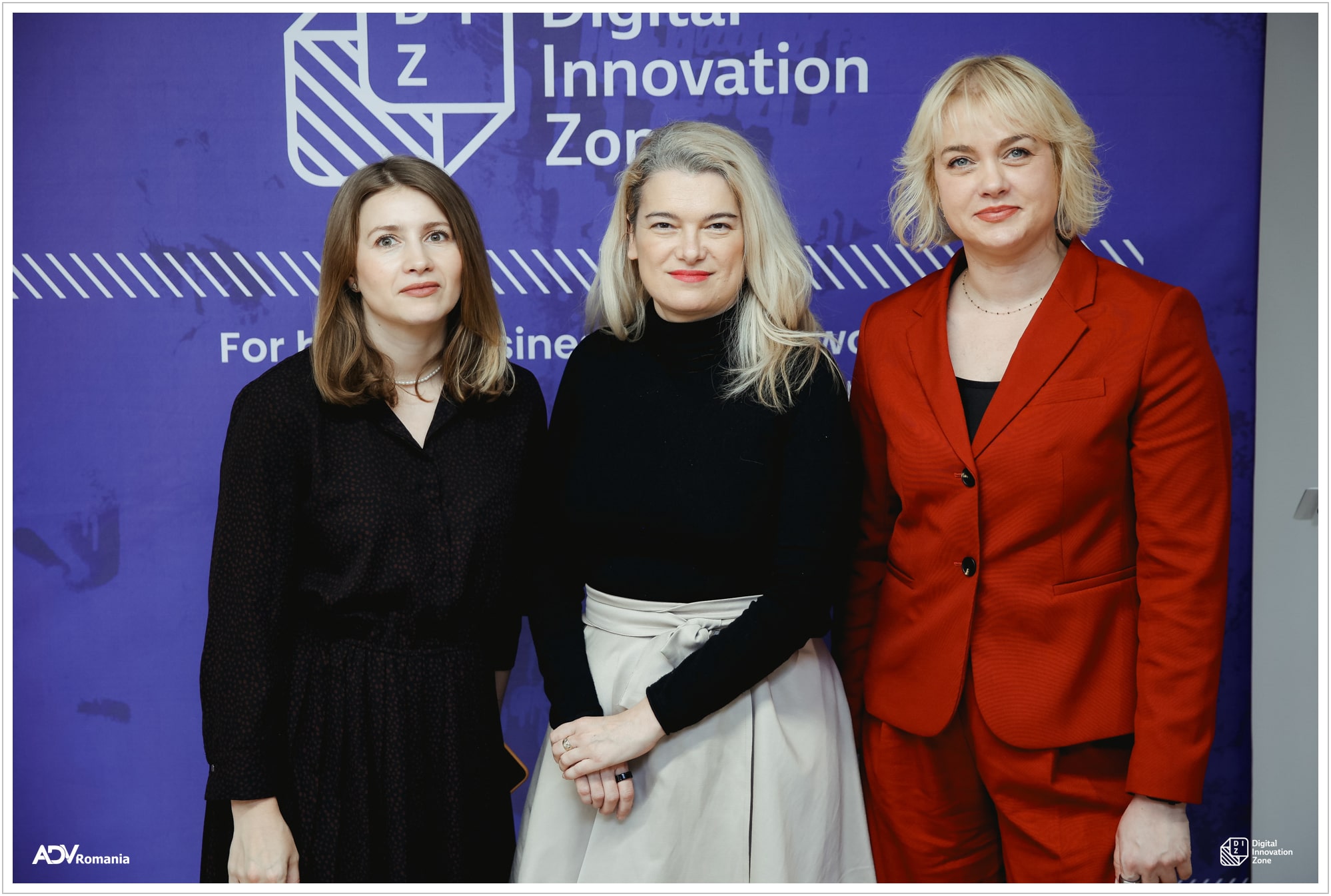
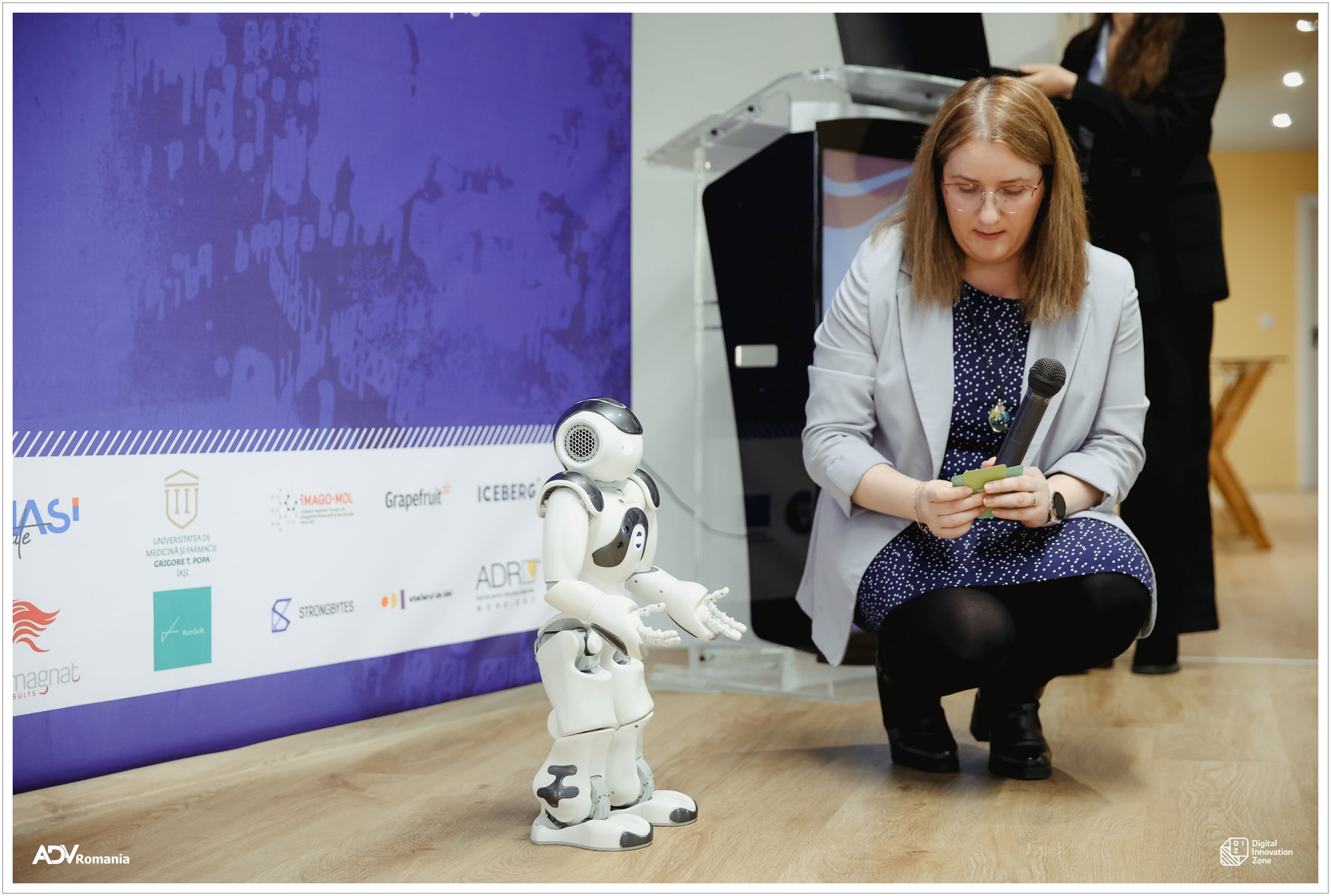
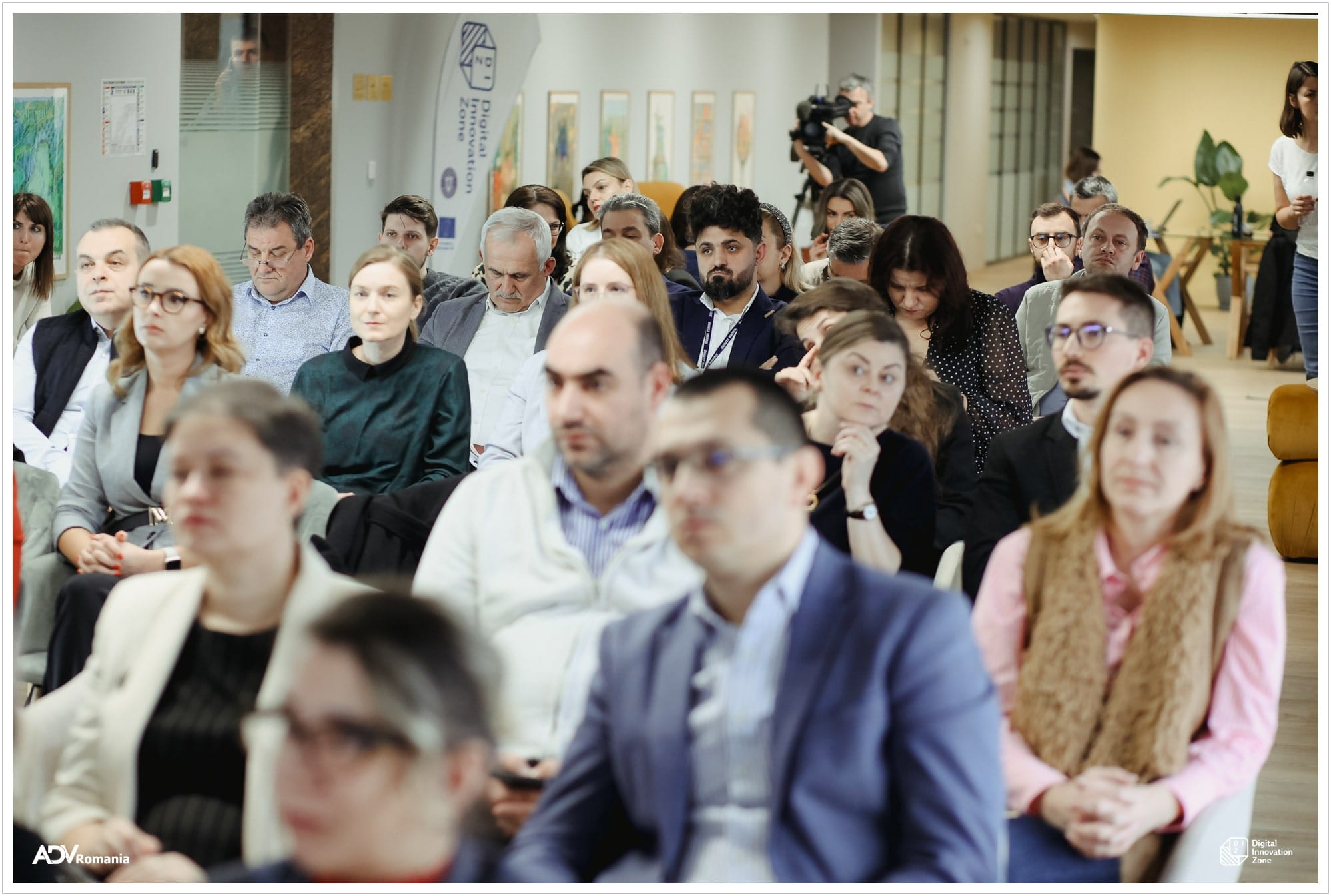
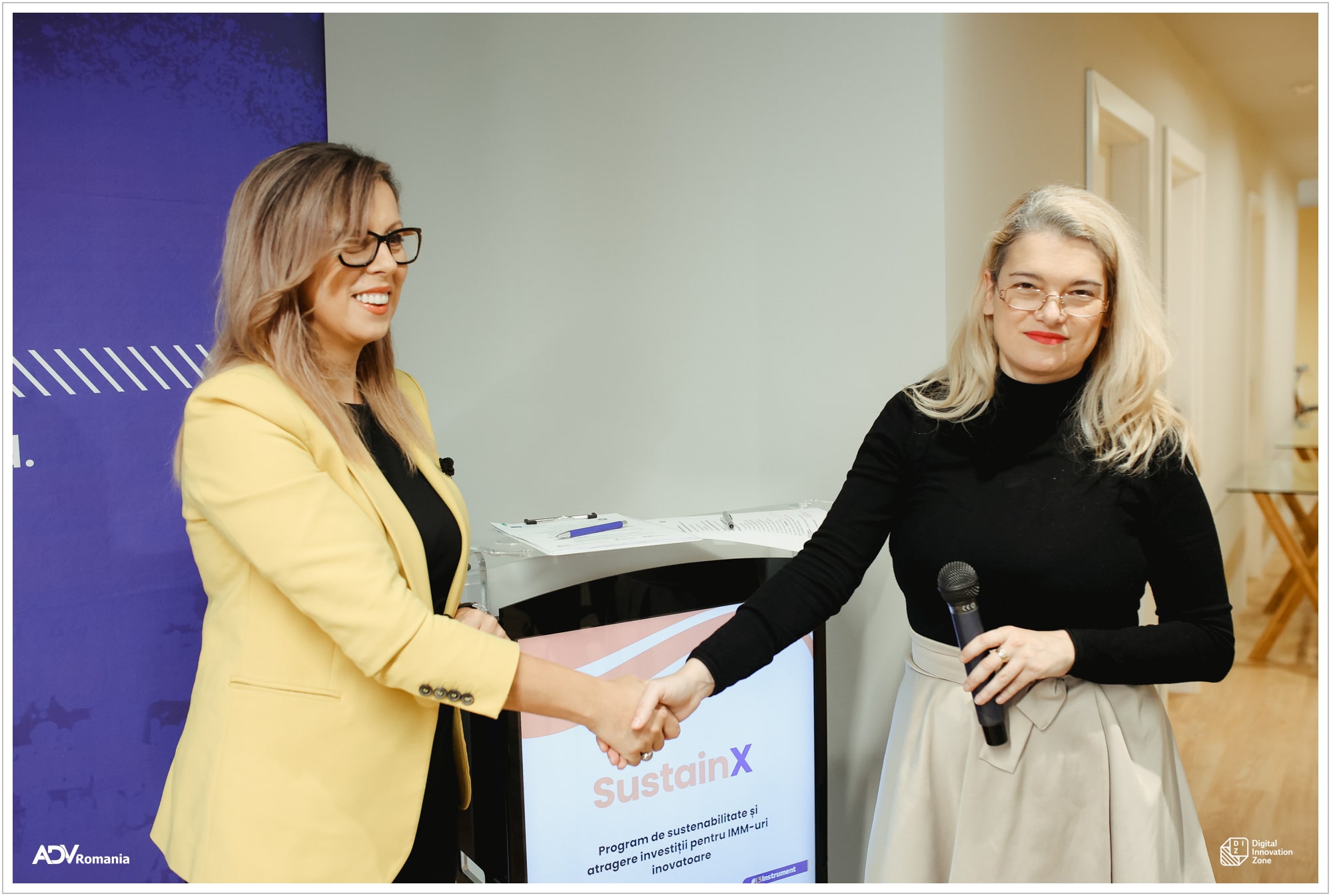
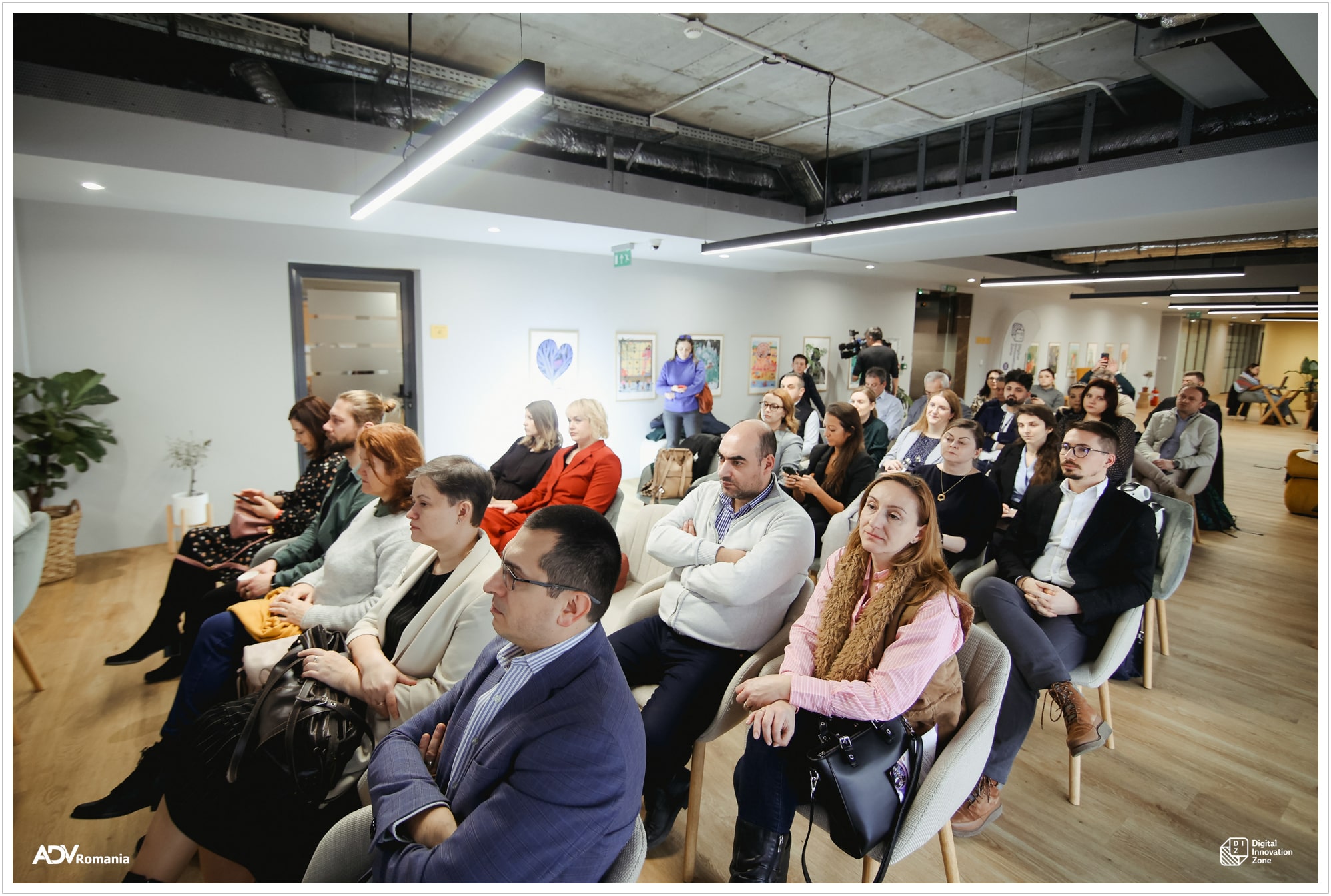
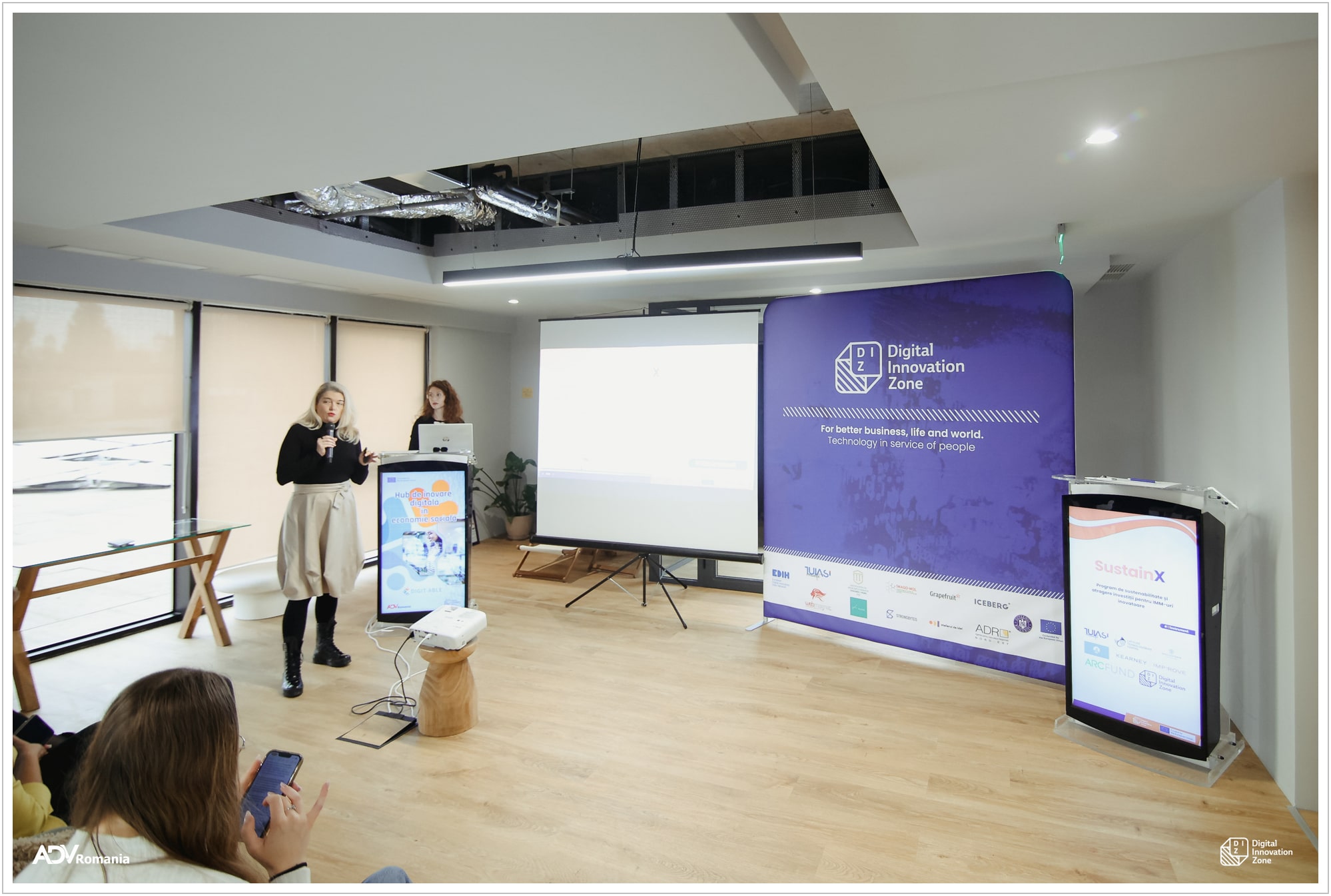
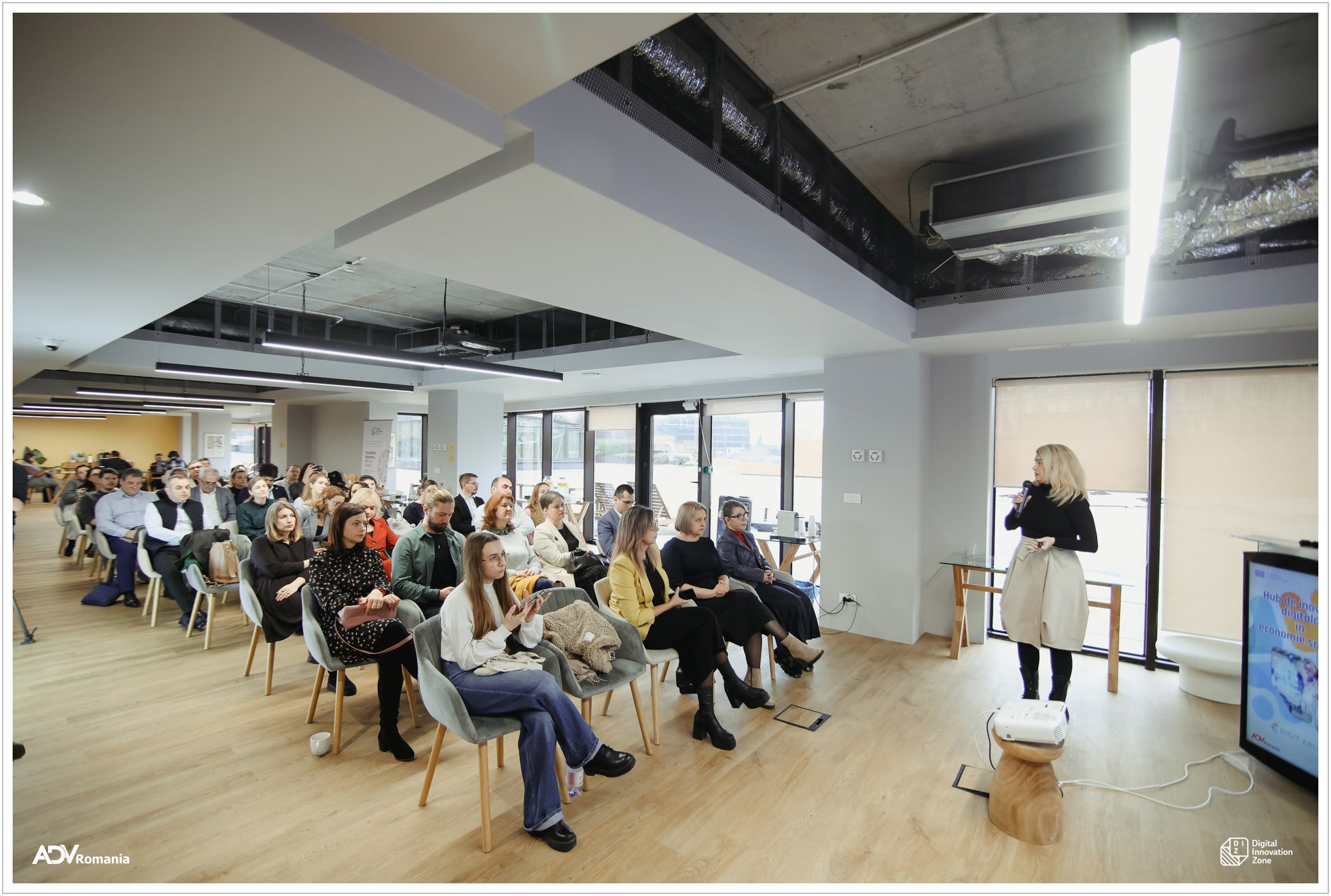
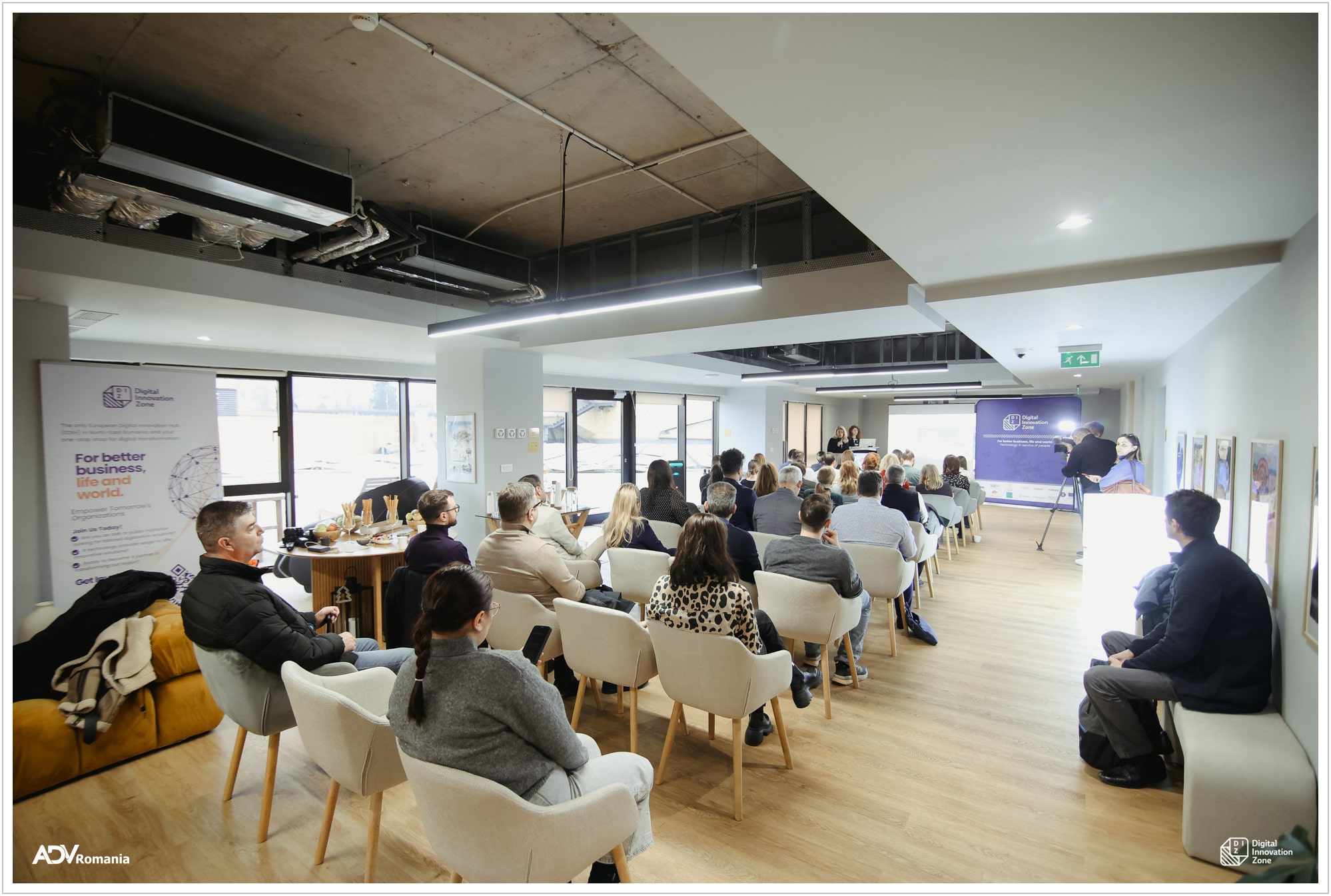
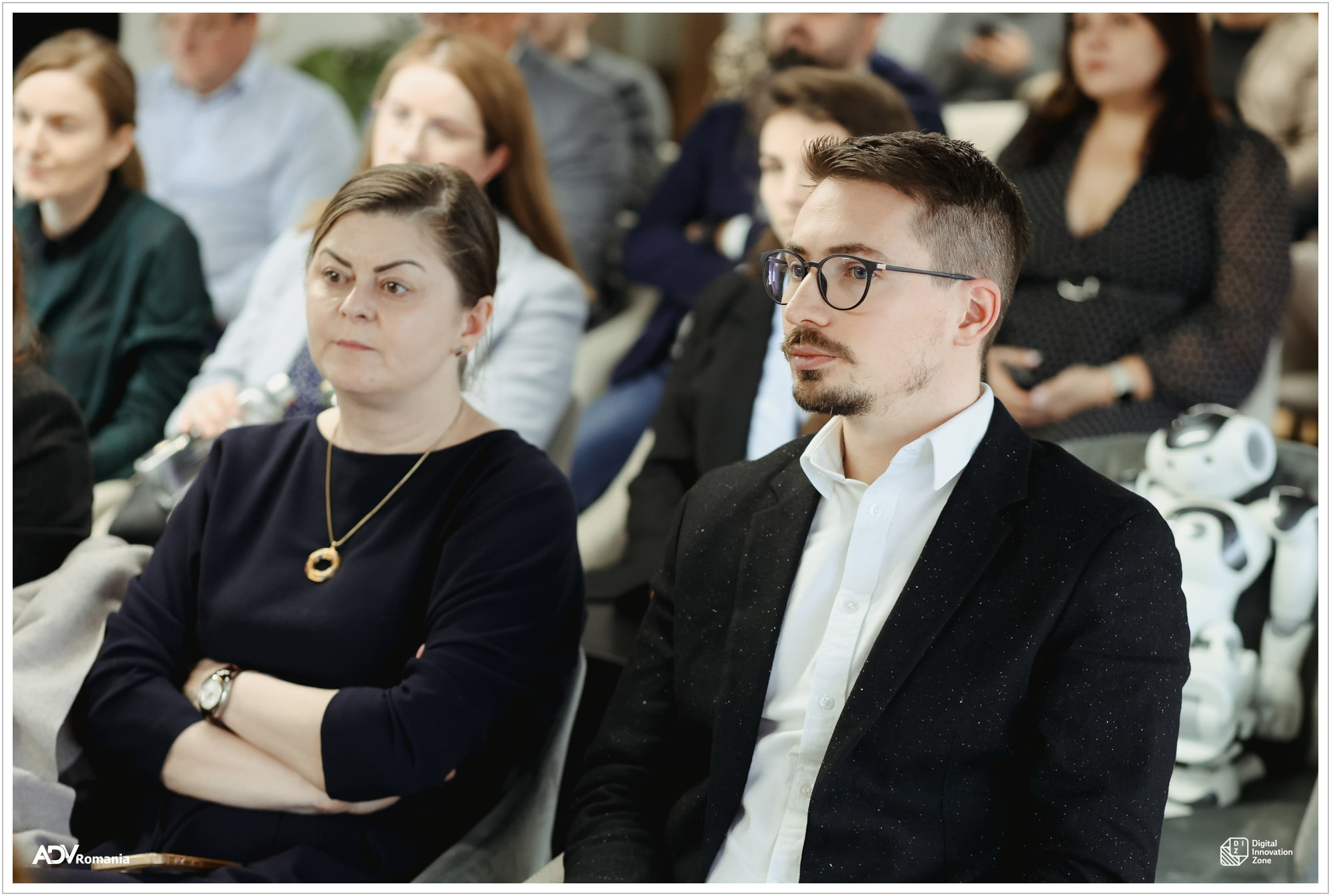
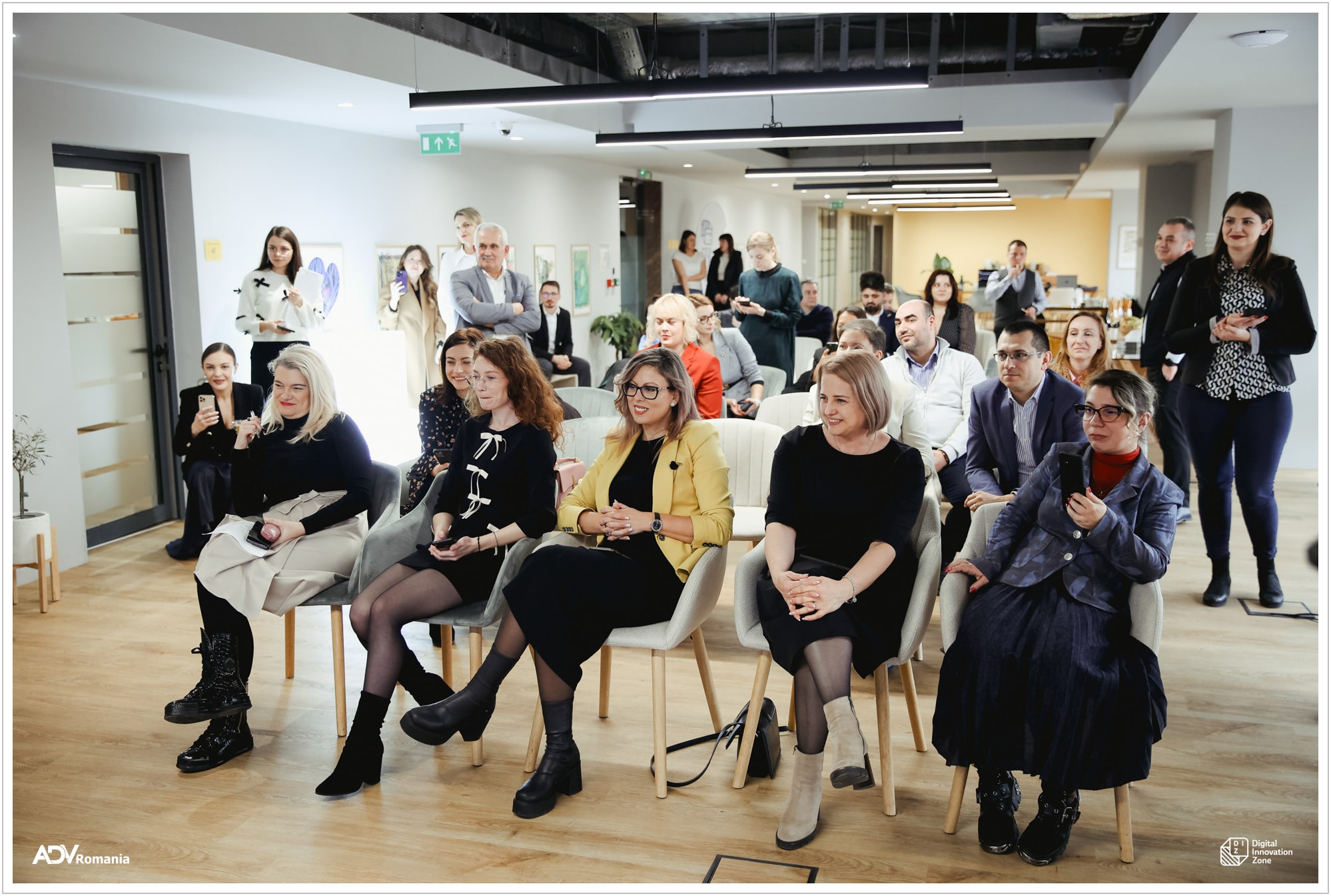
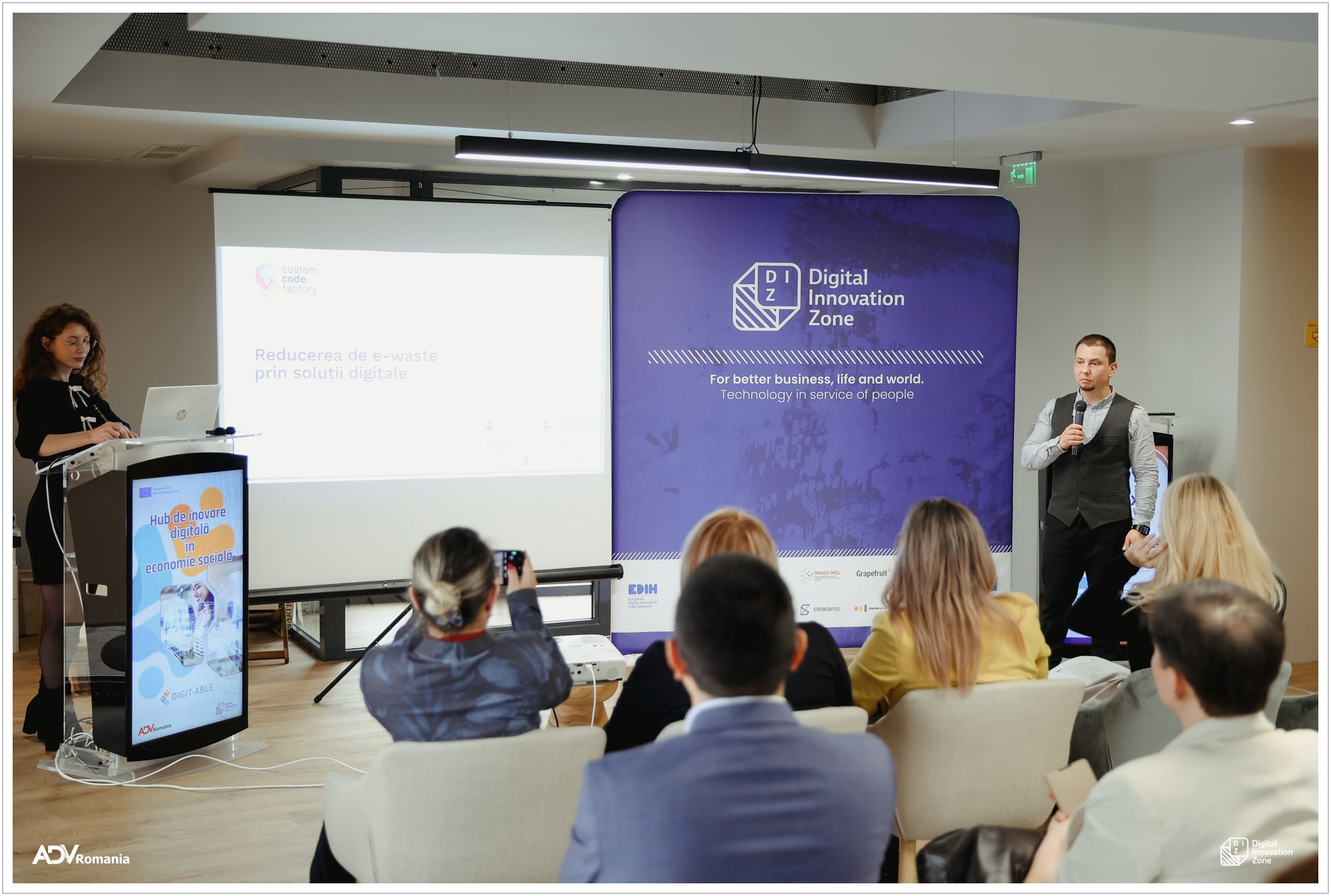
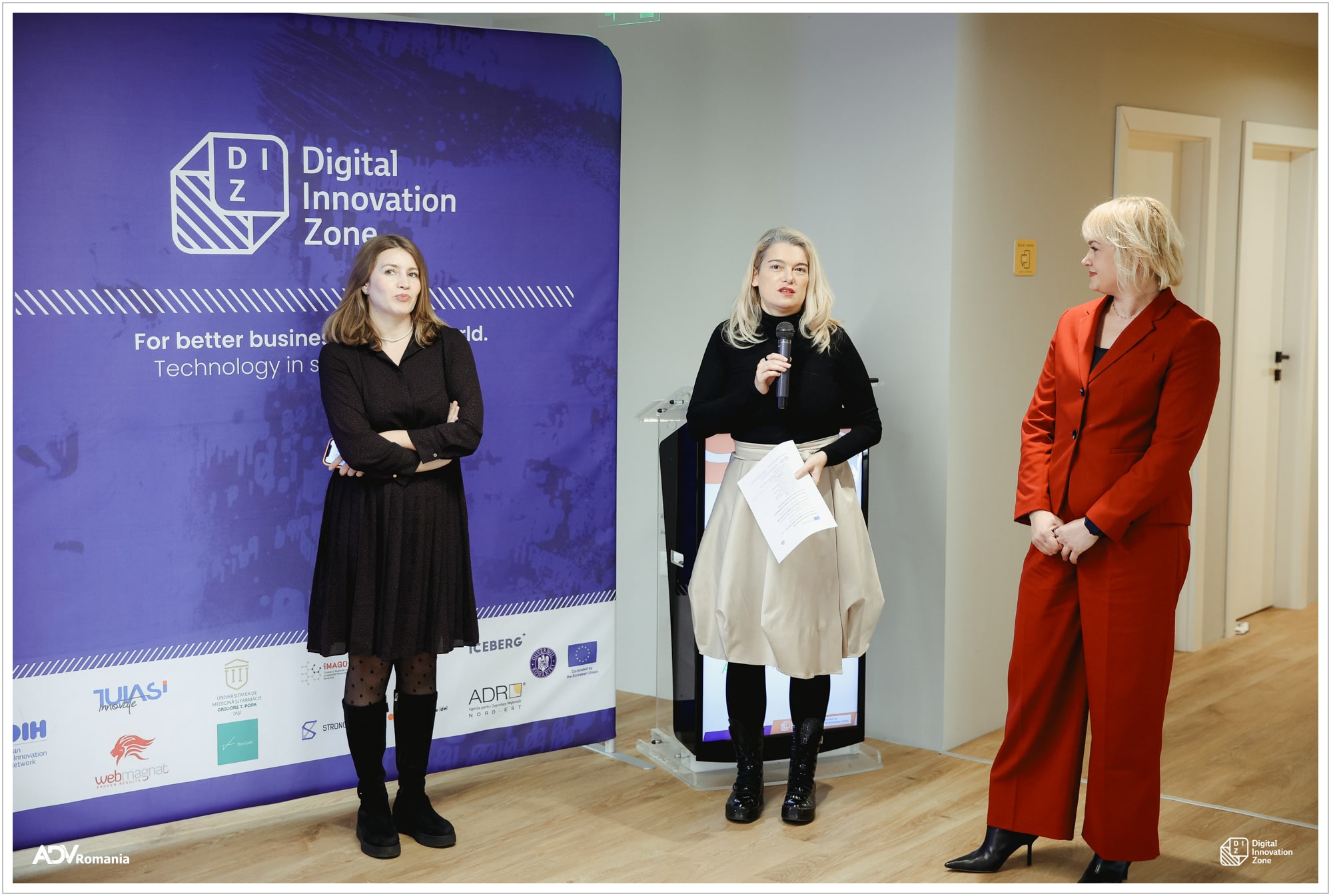
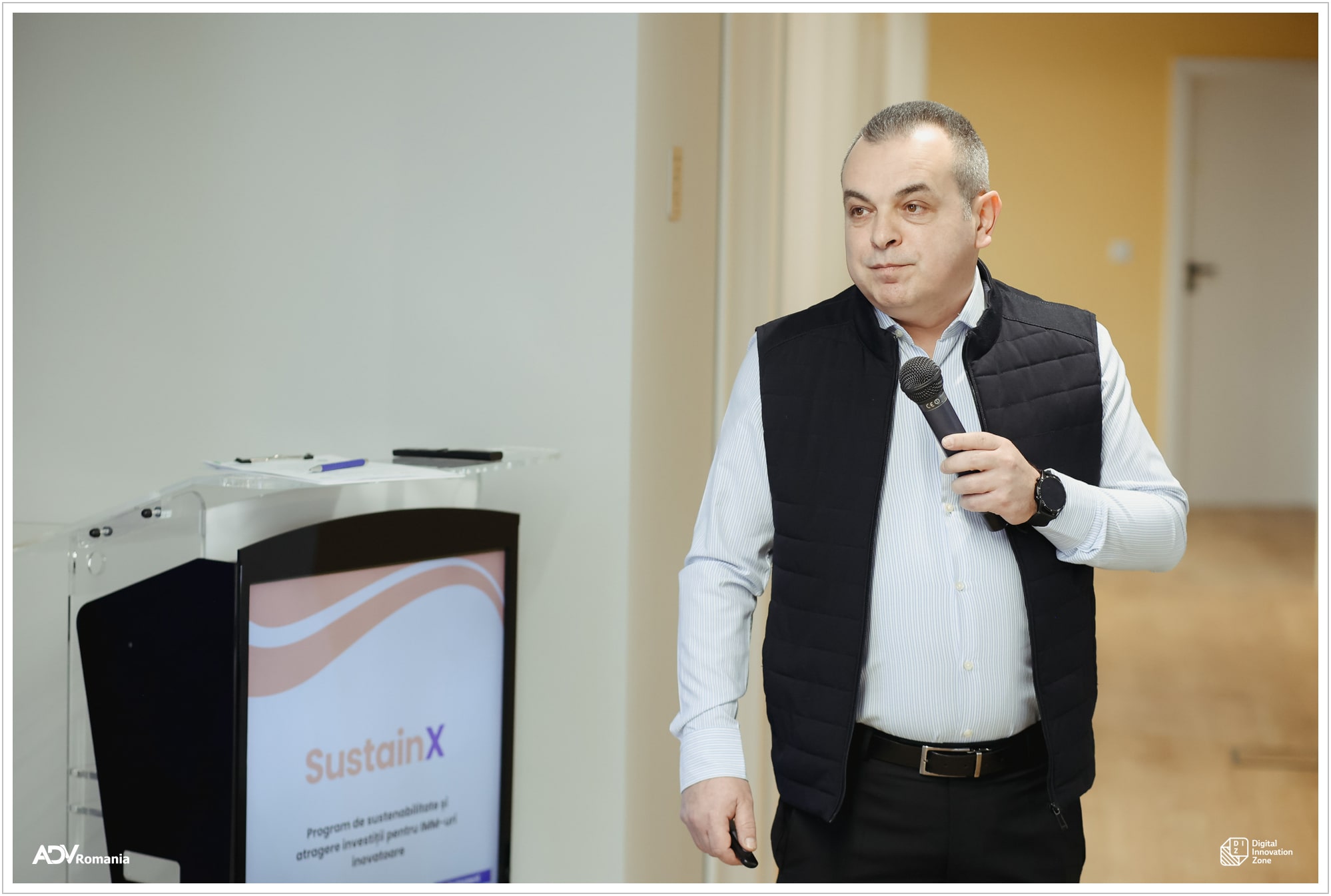
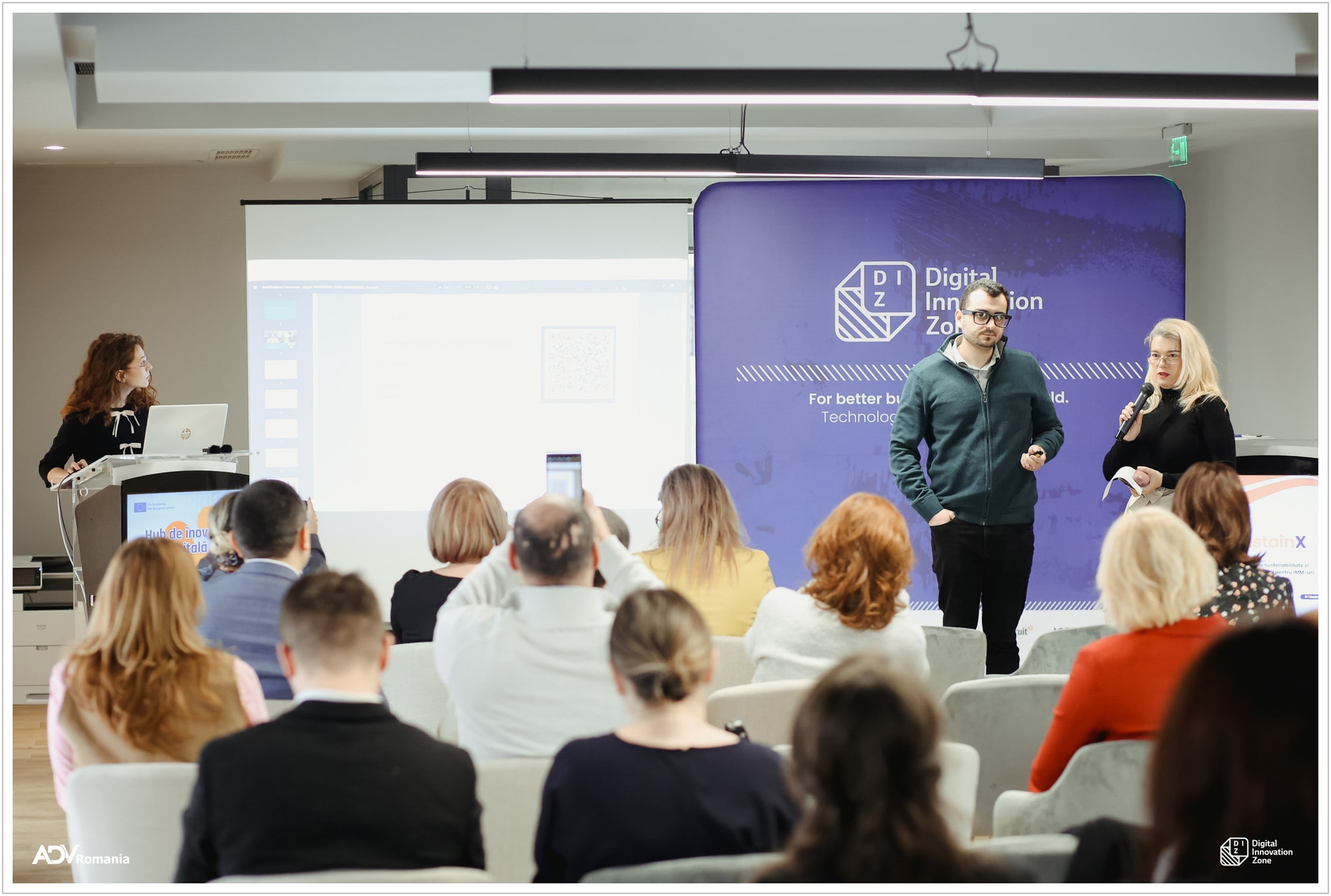


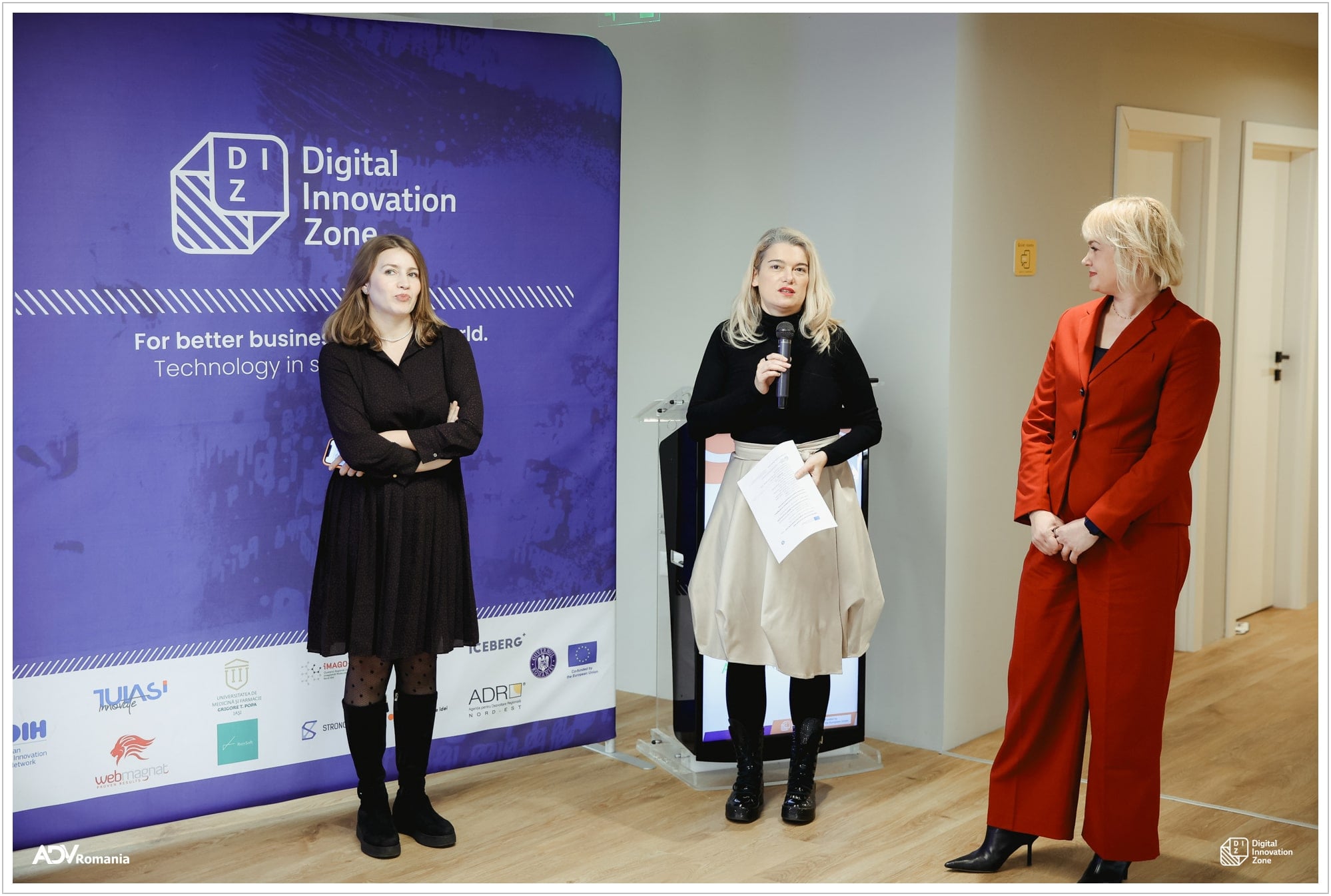
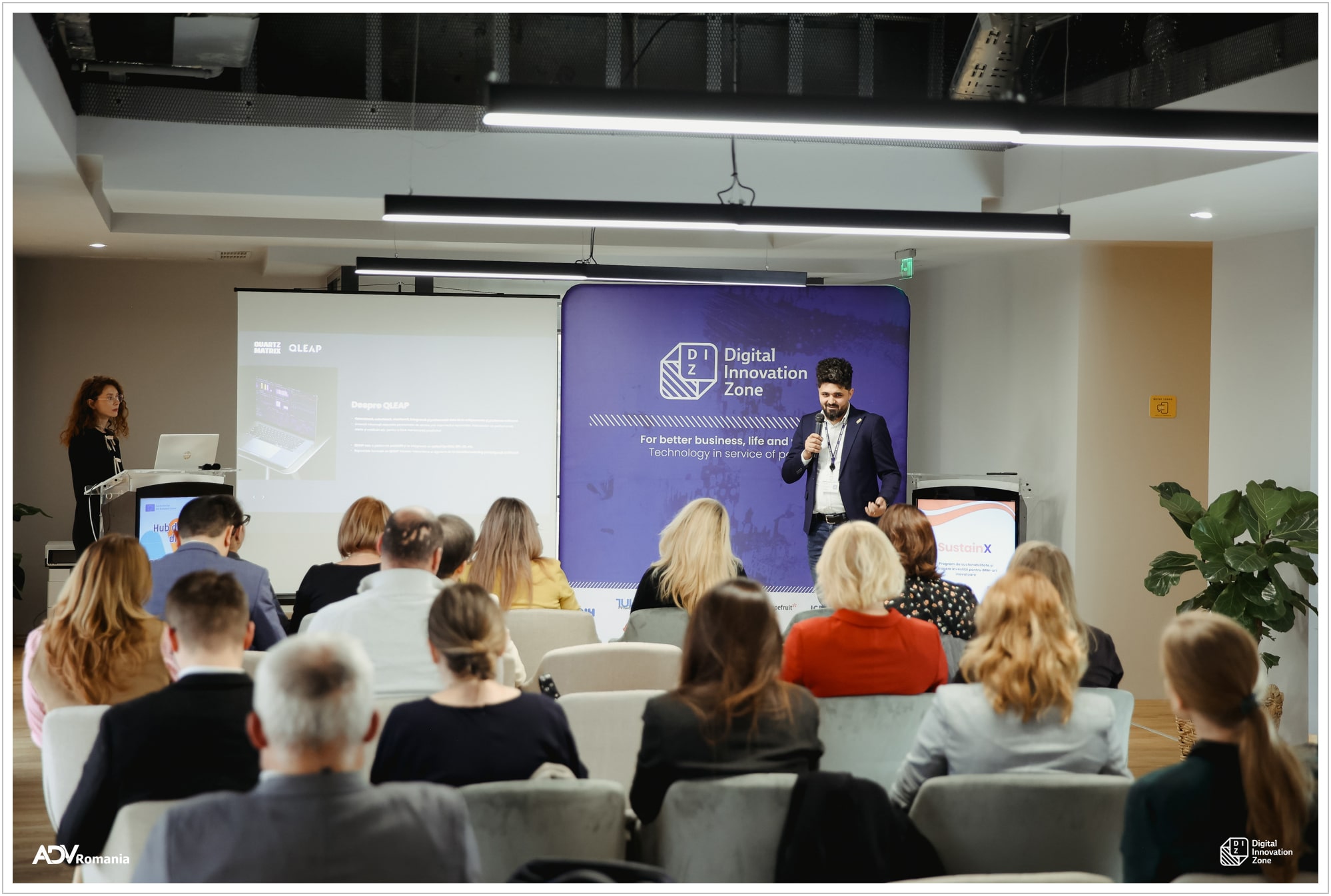
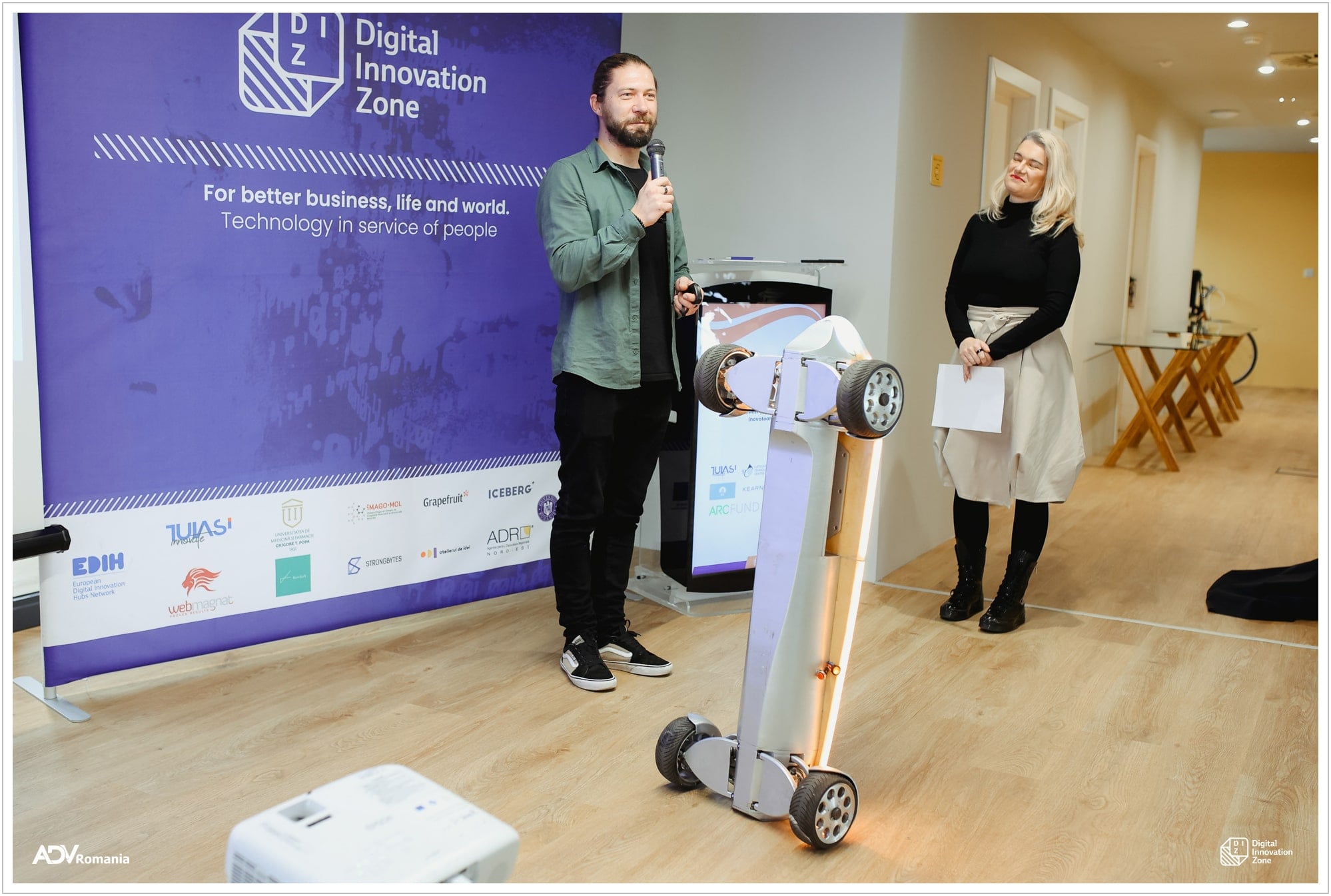
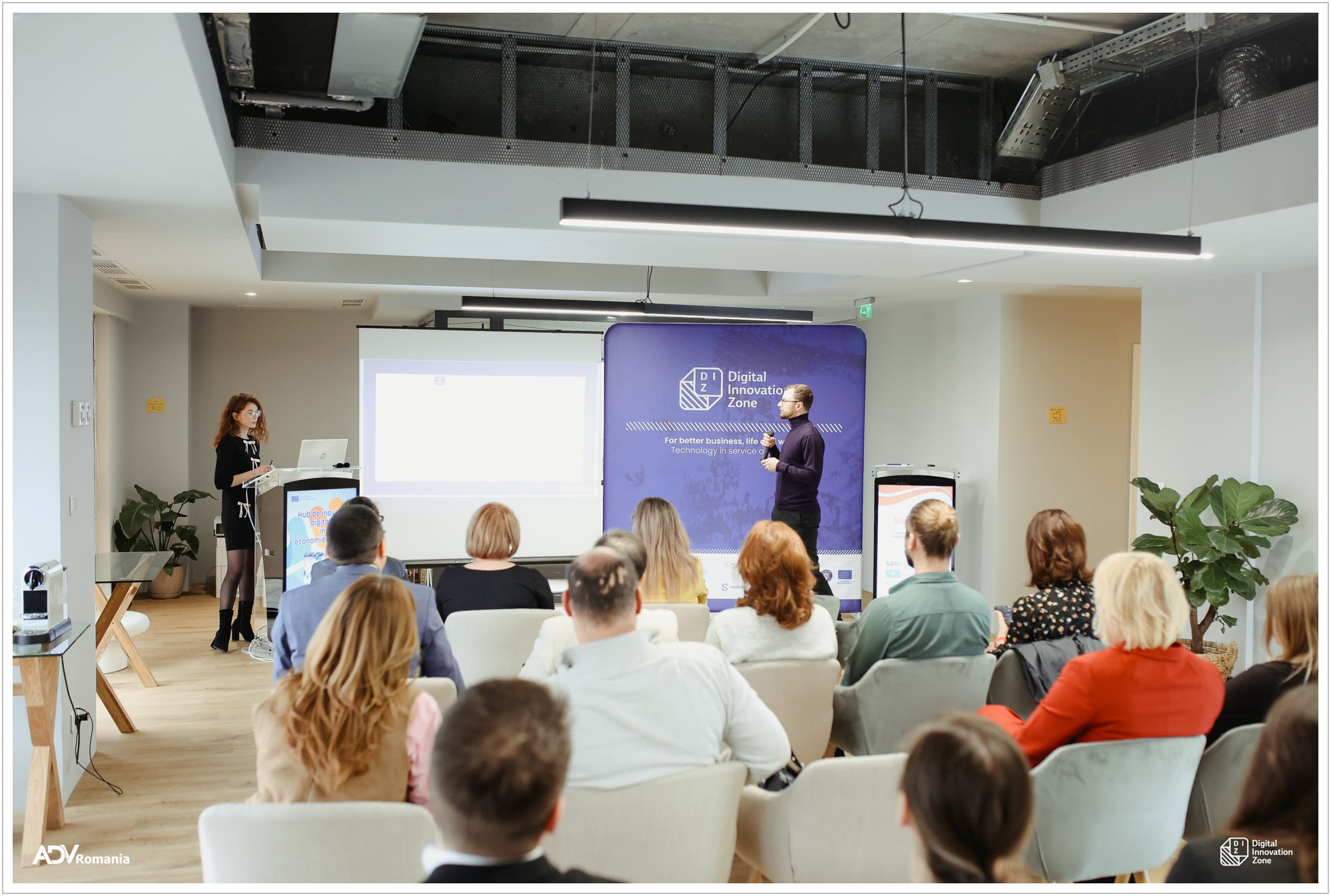
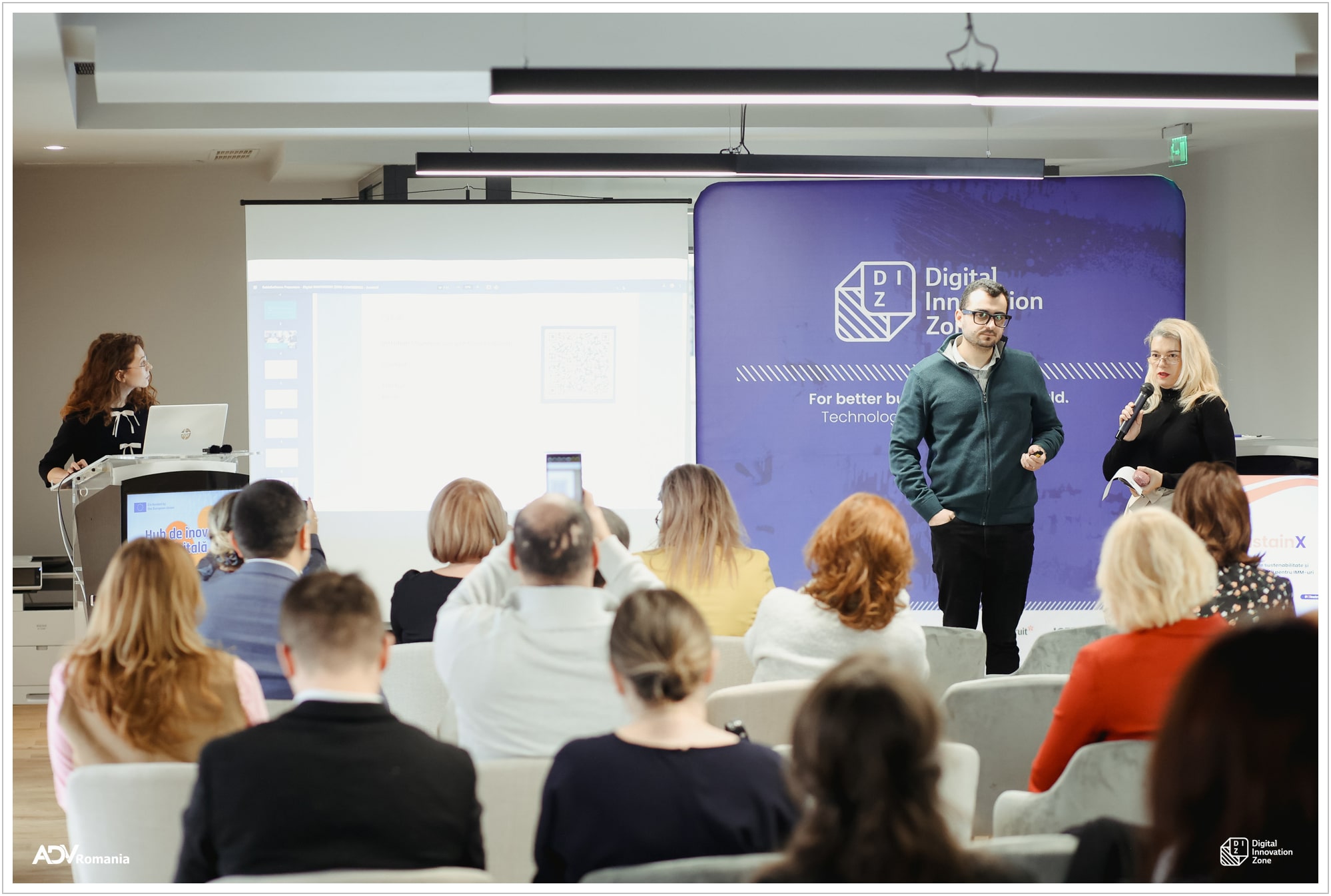
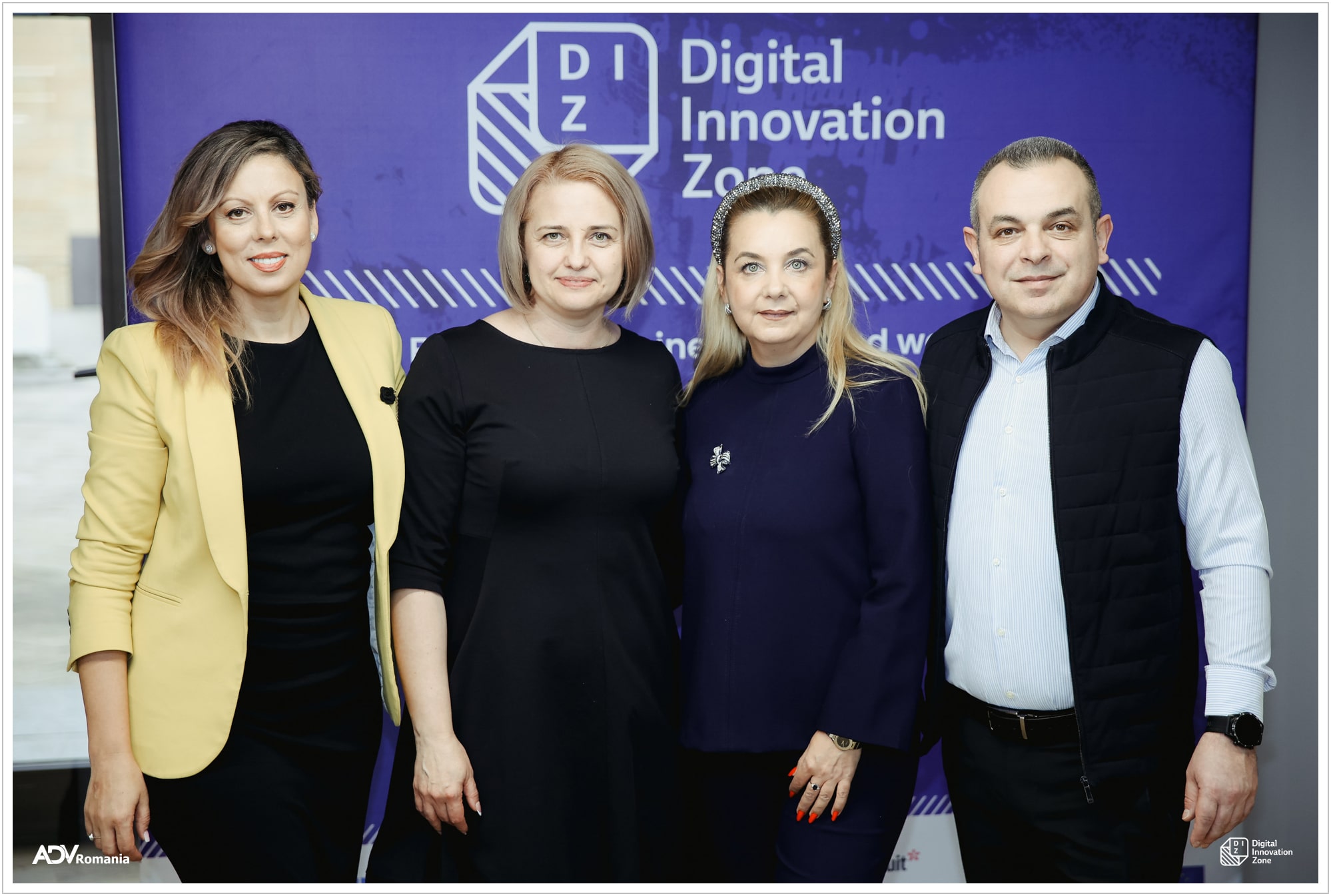
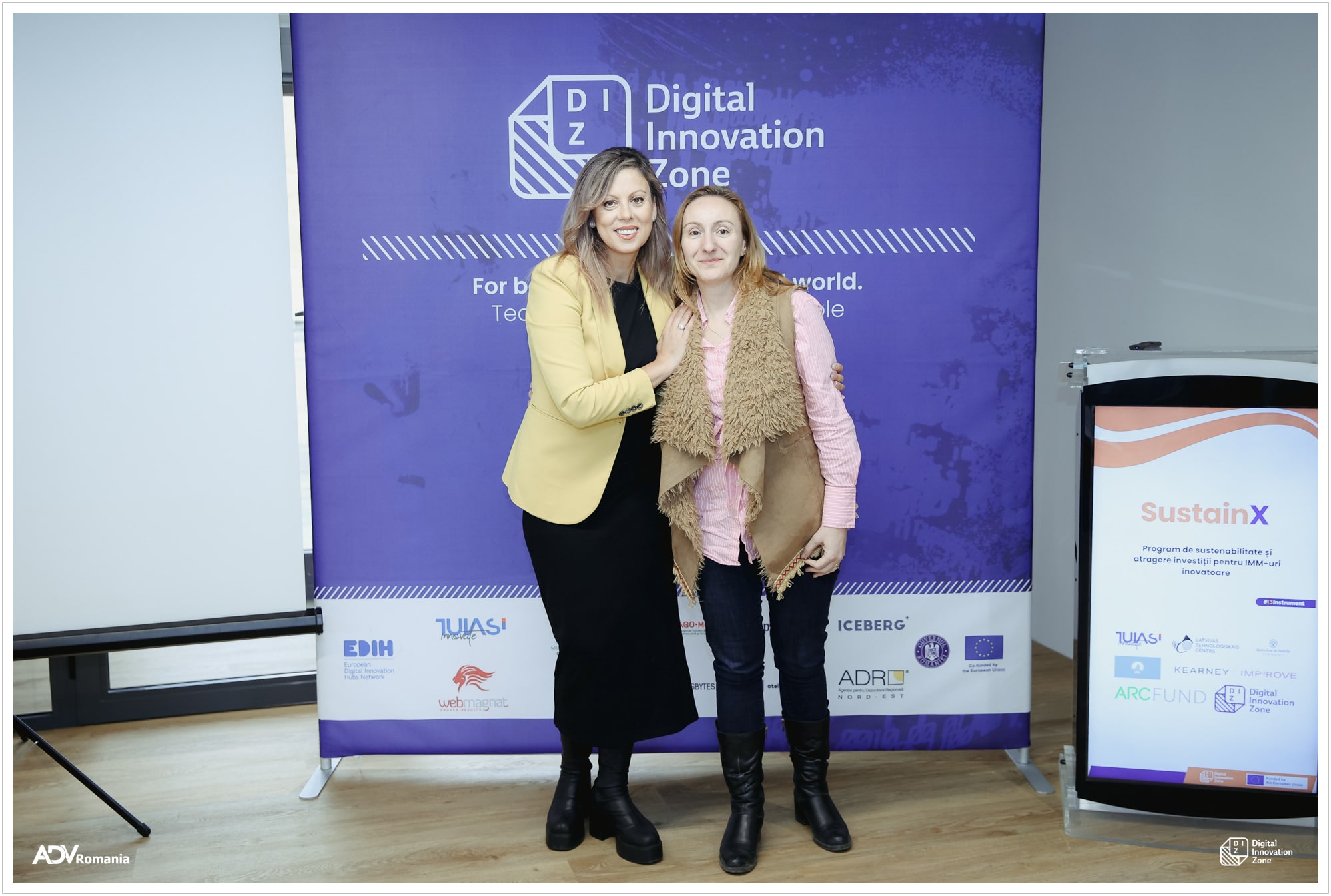
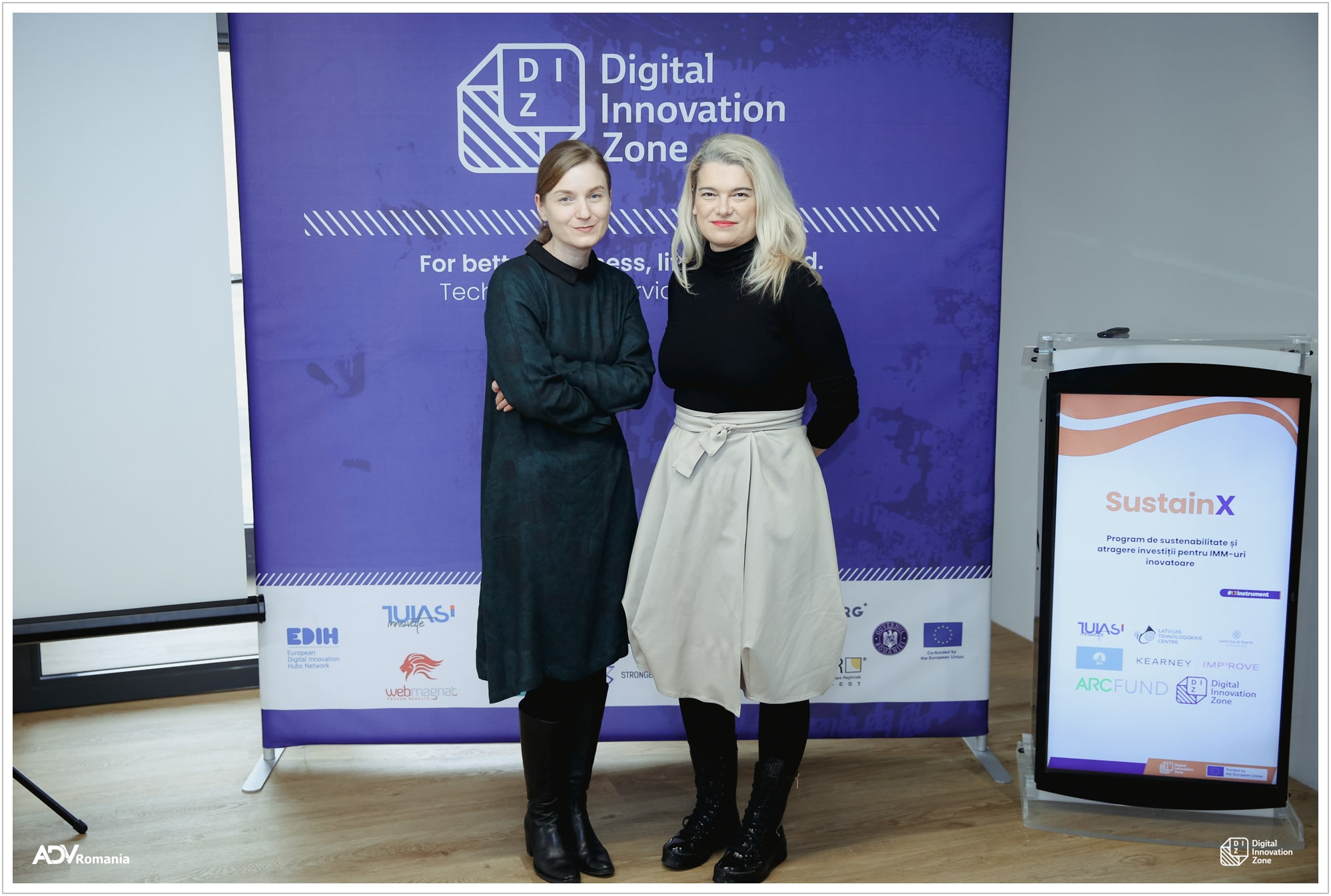
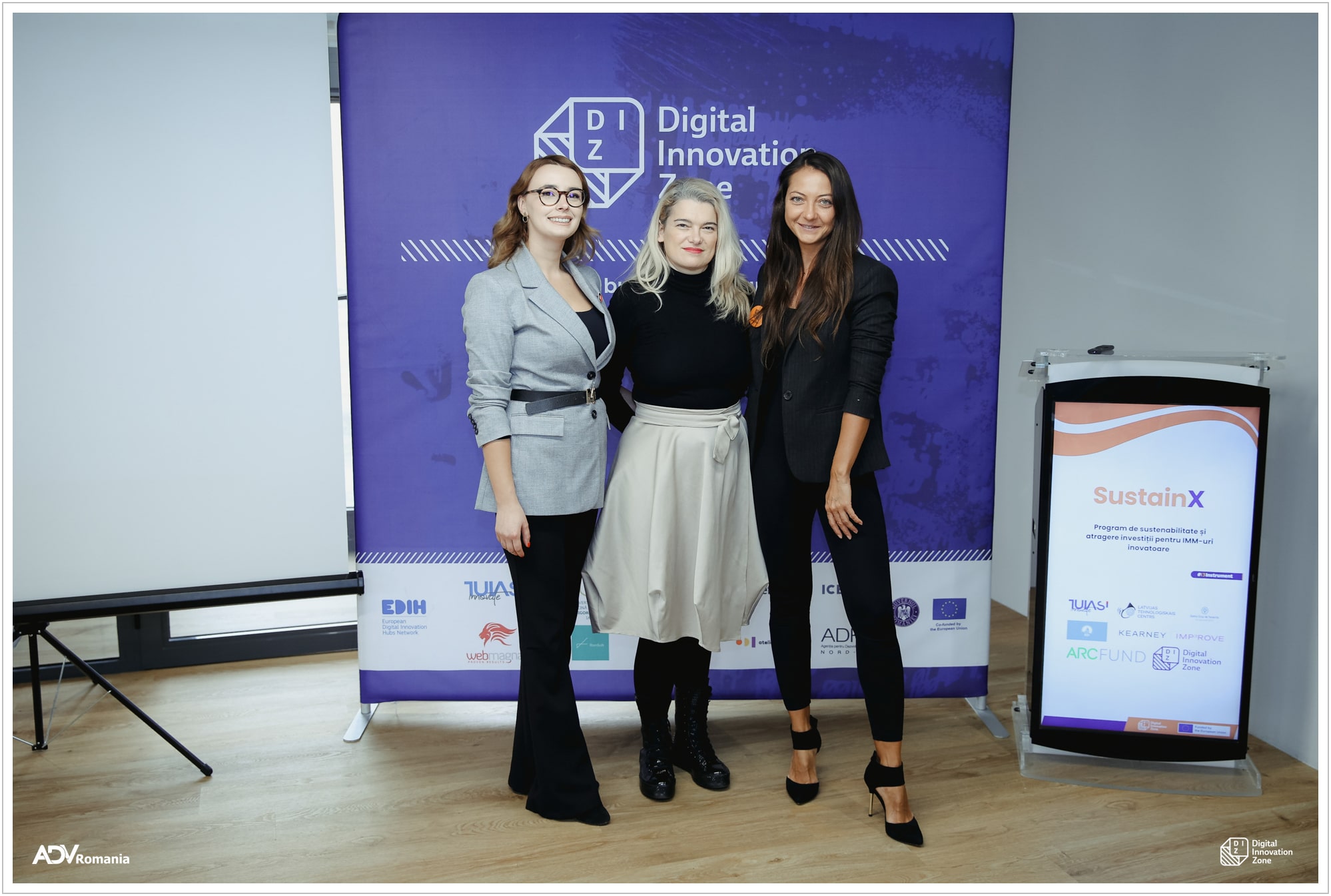
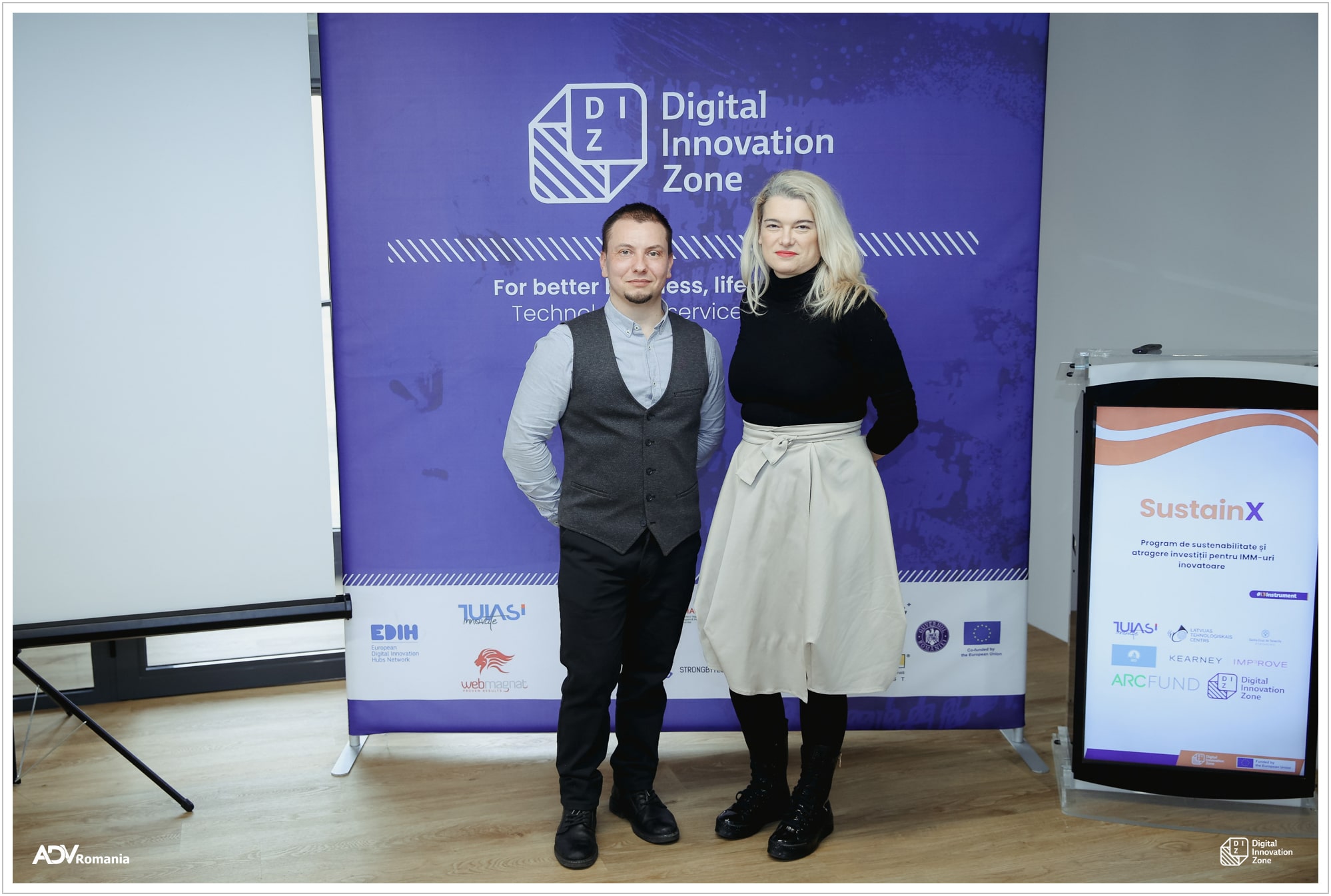
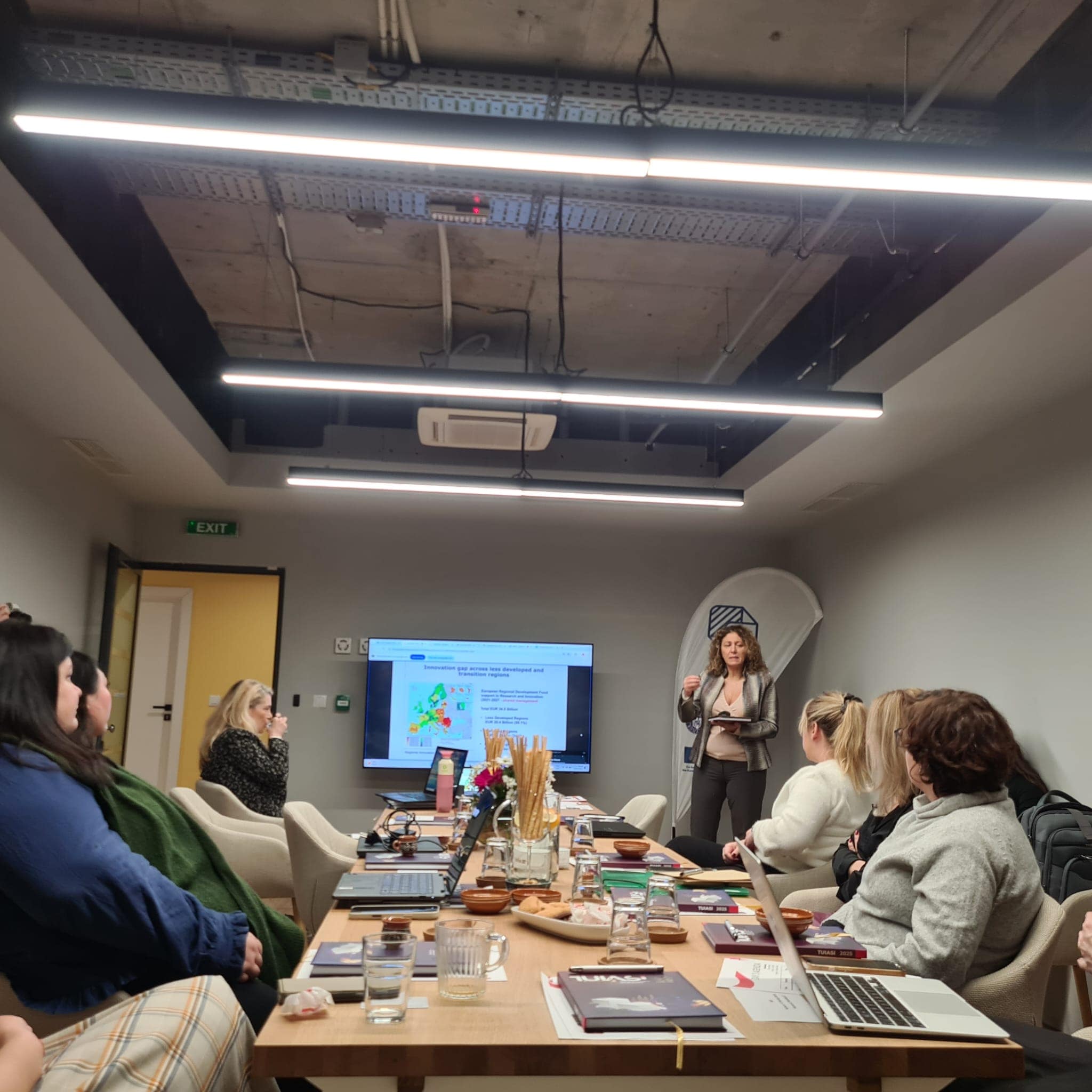
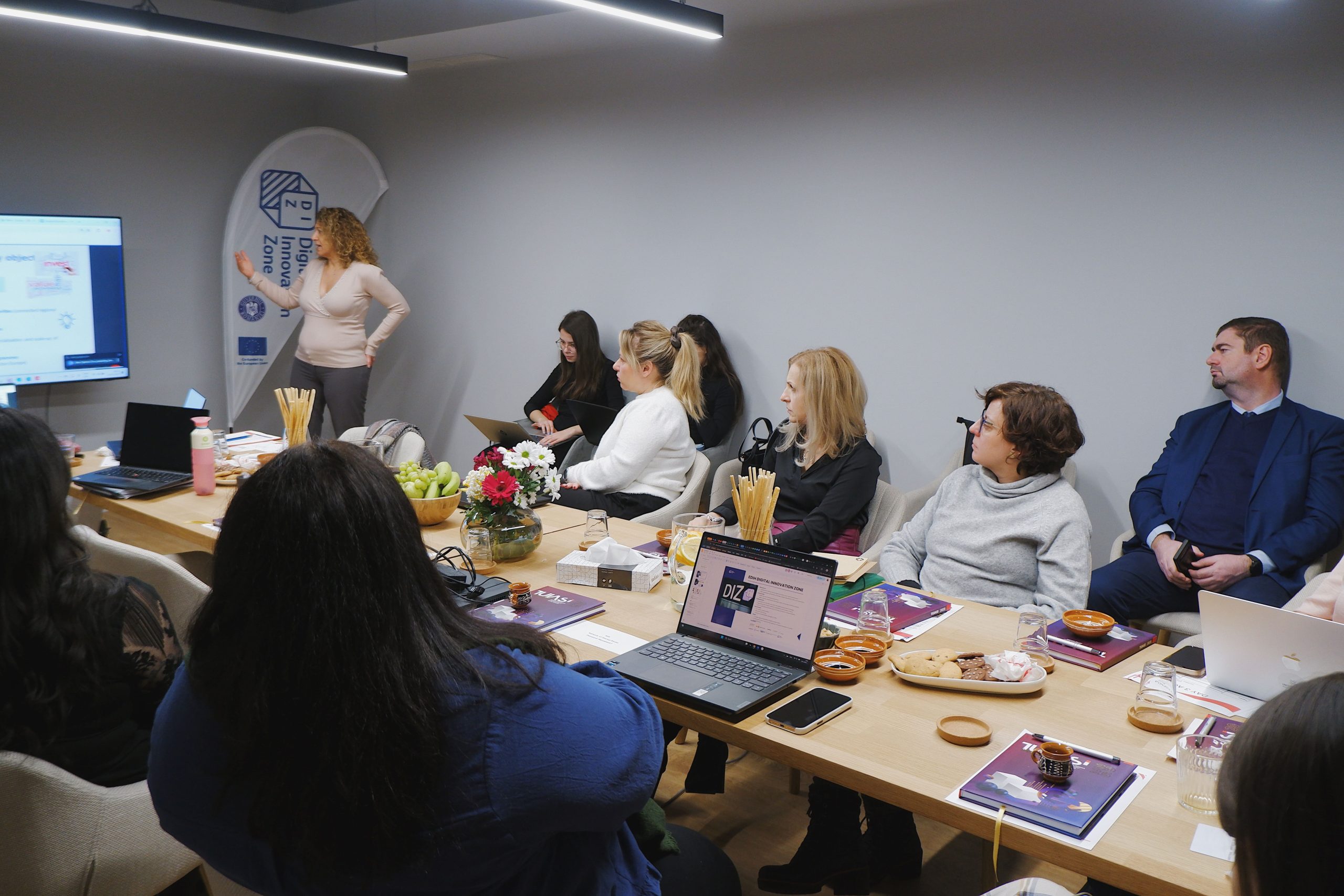
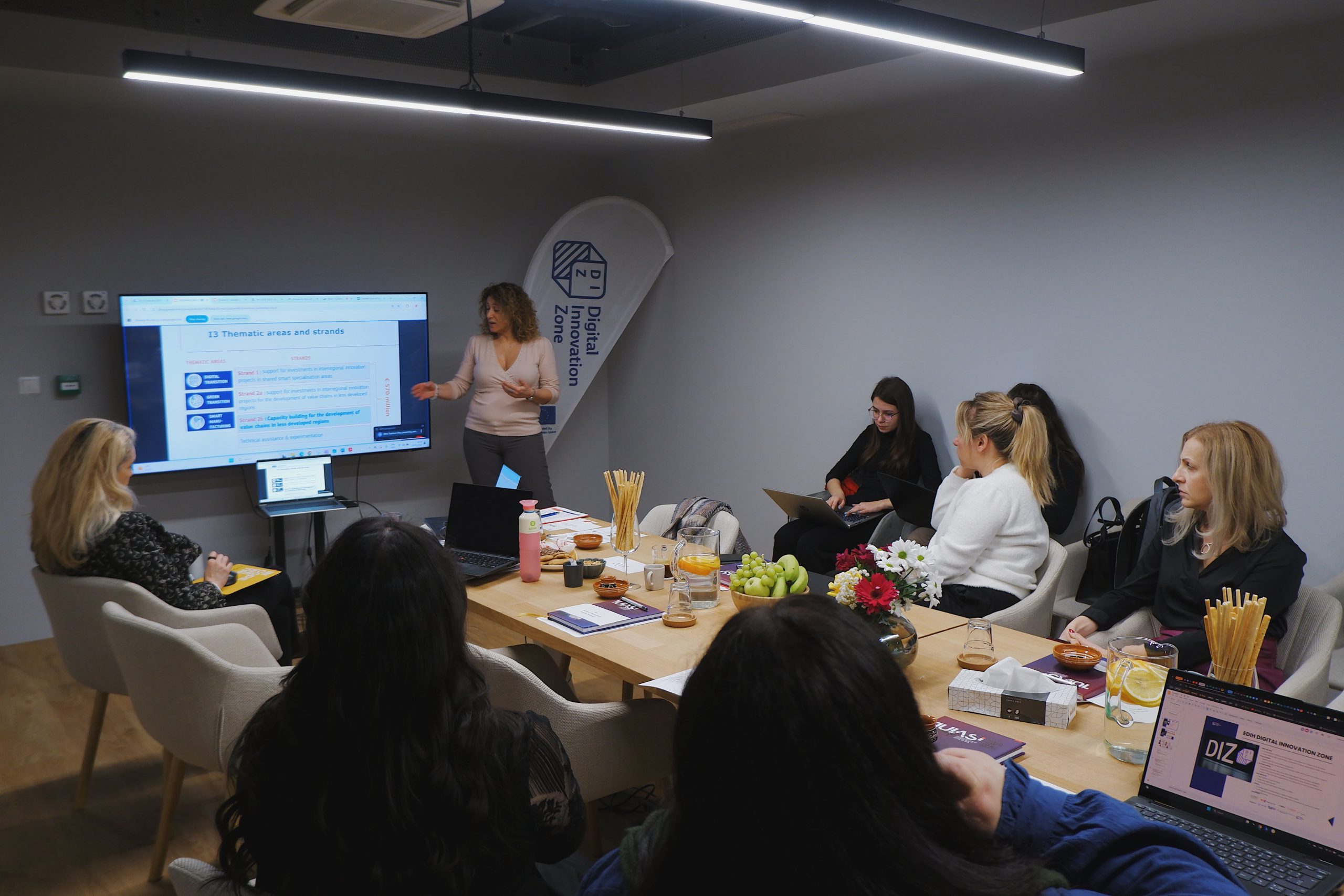
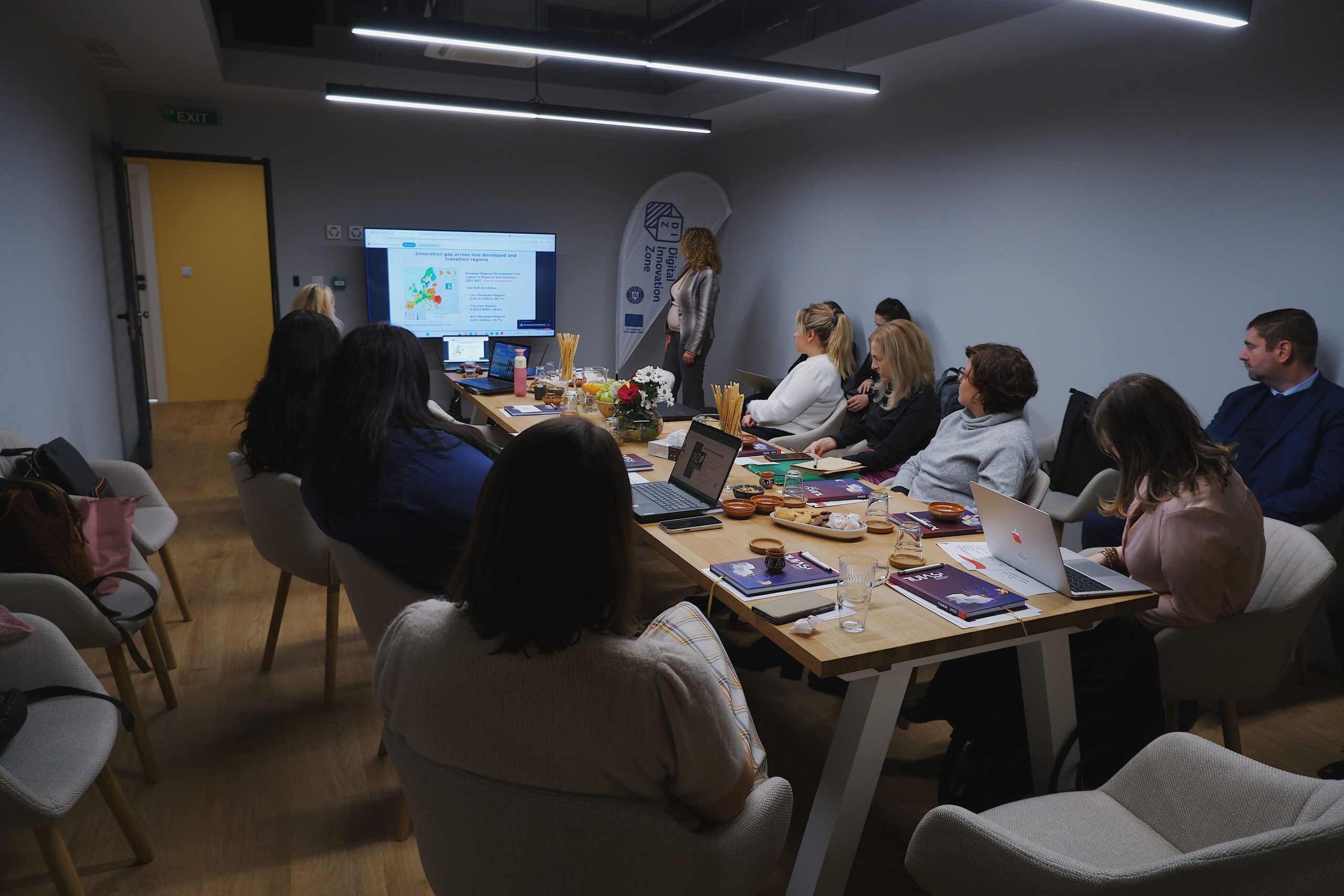

Between 30 November and 5 December 2025, the Digital Innovation Zone (DIZ) team organized International Sustainability Week—a working and learning

Digital Innovation Zone announces that 34 SMEs from the North-East region have joined the European program SustainX – Fostering Sustainable
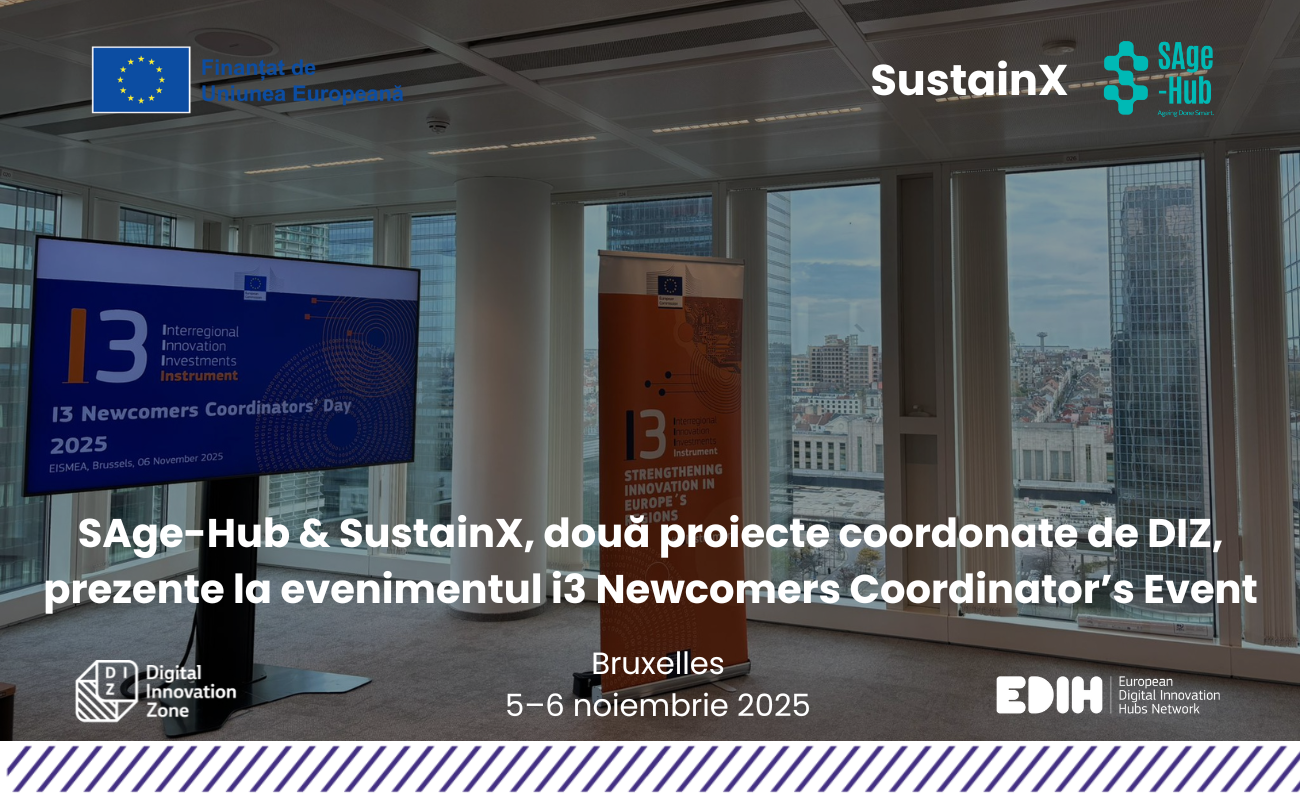
On 5–6 November 2025, the Digital Innovation Zone (DIZ) team represented by Cristina Baghiu (Hub Coordinator) and Adina Serediuc (Program
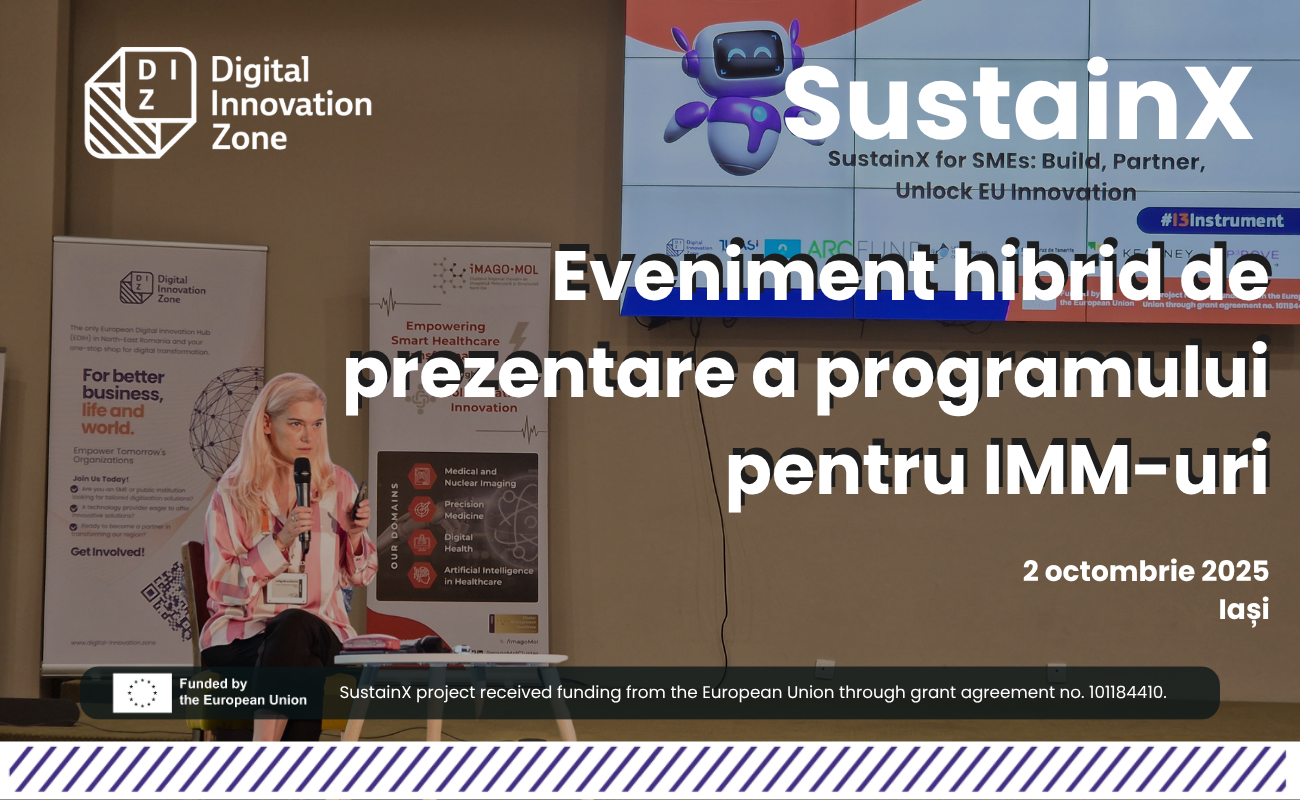
On October 2nd, 2025, DIZ in collaboration with TUIASI, presented the SustainX program during the workshop “MedTech North-East: Current Landscape

This project received funding from the European Union through grant agreement no. 101184410.
“Funded by the European Union. Views and opinions expressed are however those of the author(s) only and do not necessarily reflect those of the European Union. Neither the European Union nor the granting authority can be held responsible for them.”